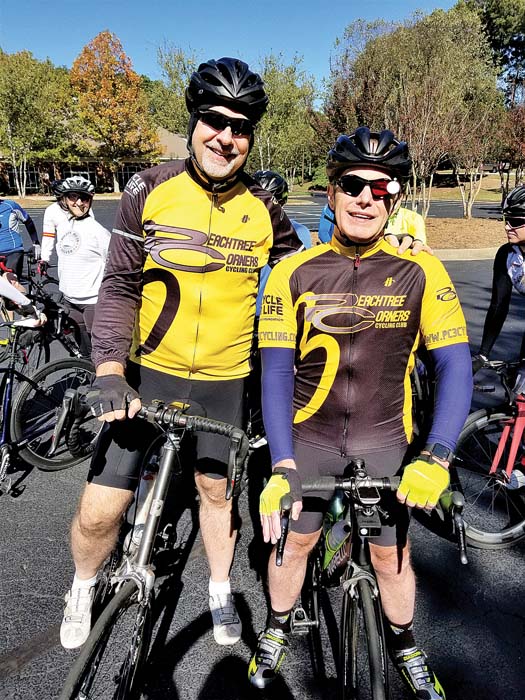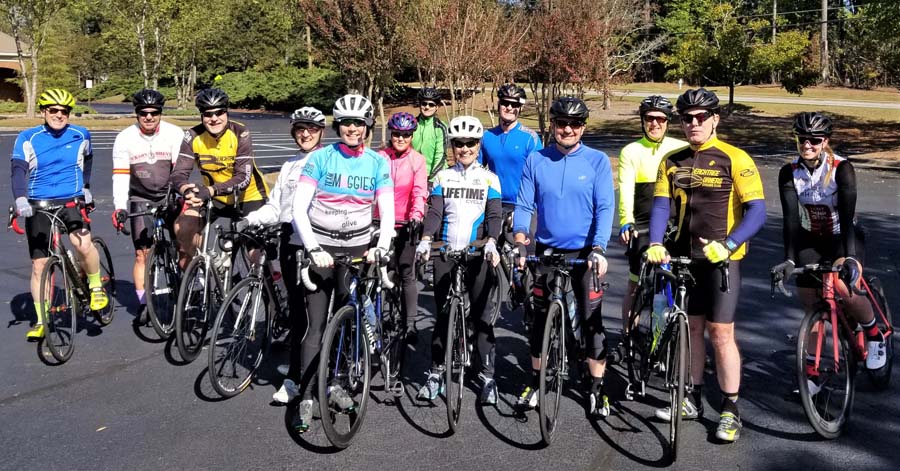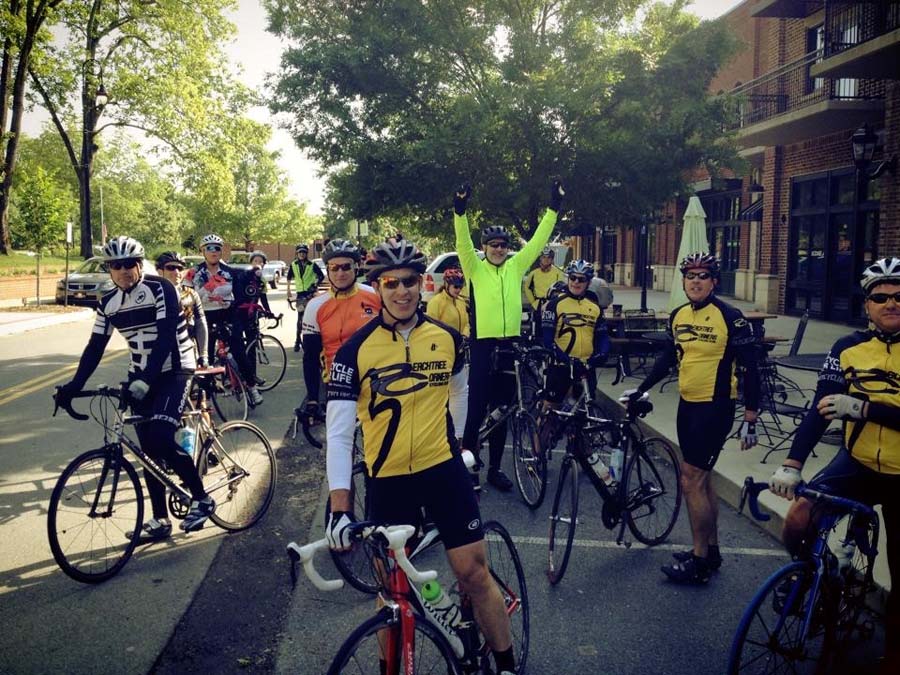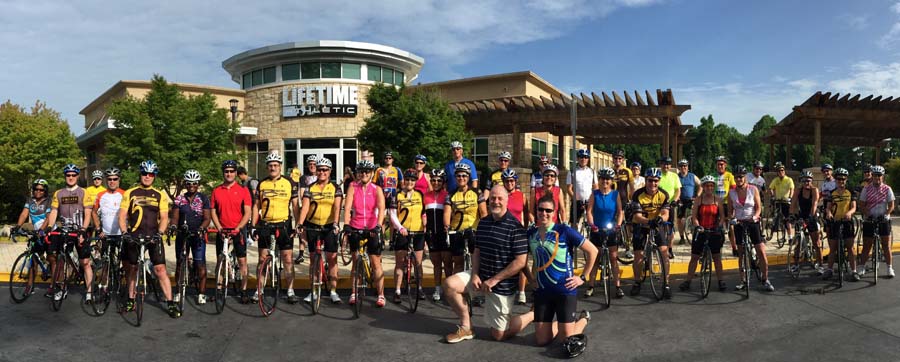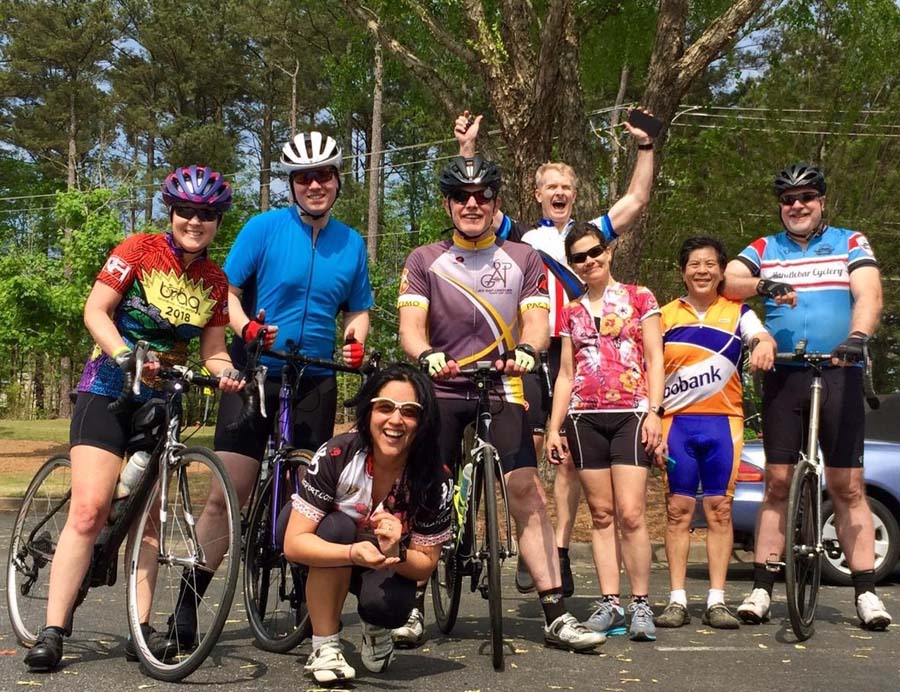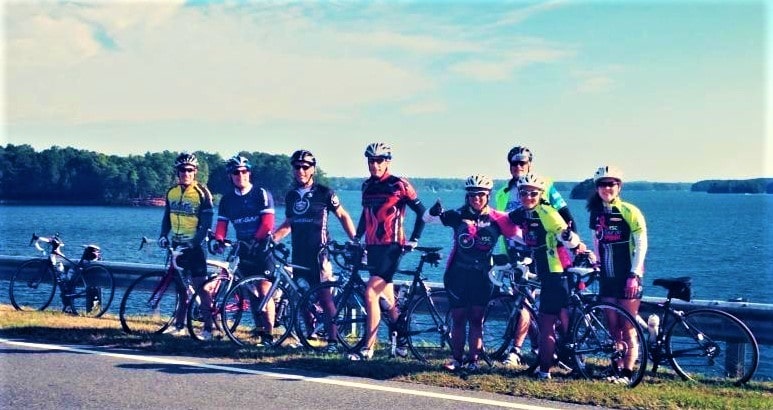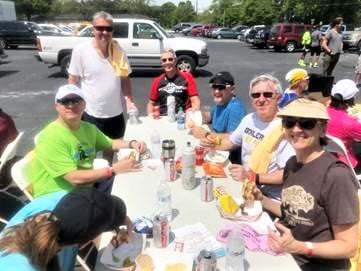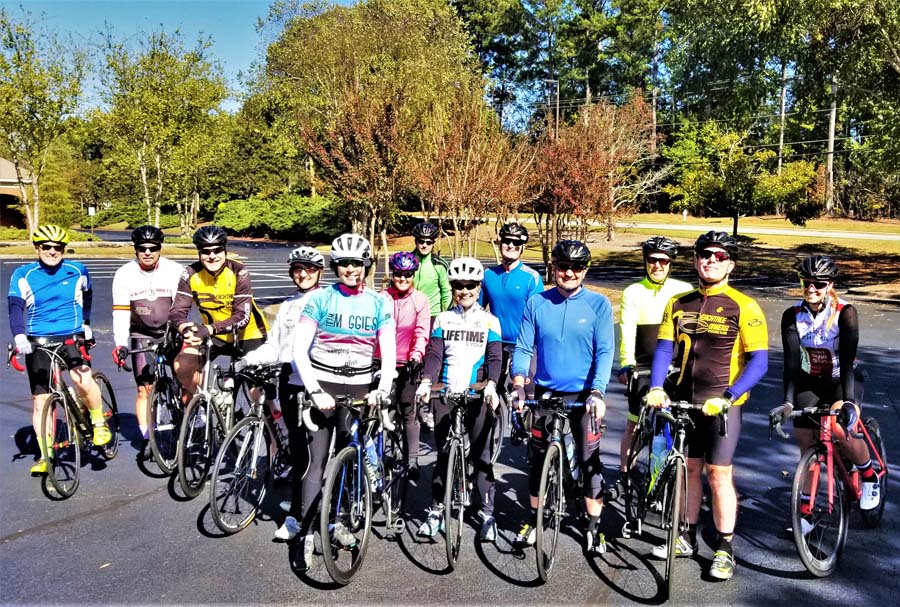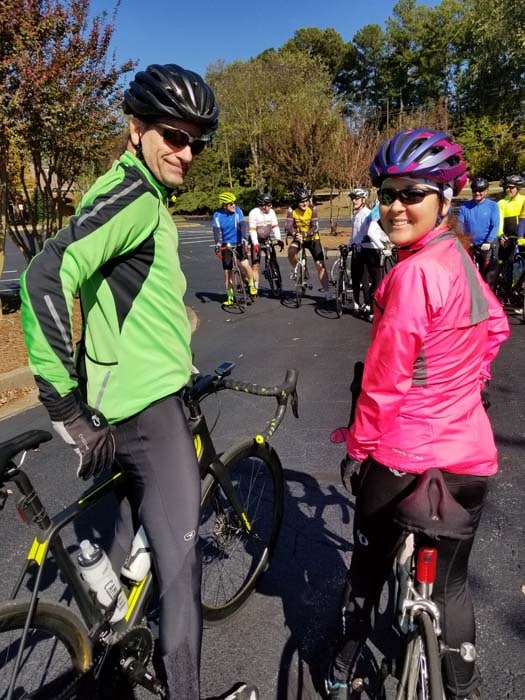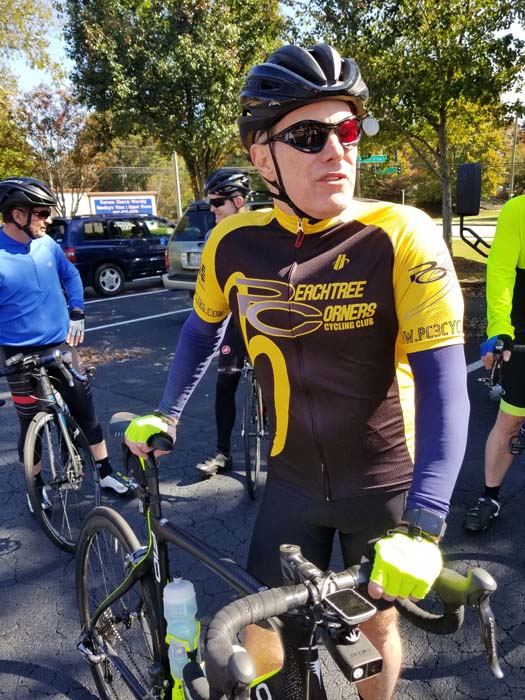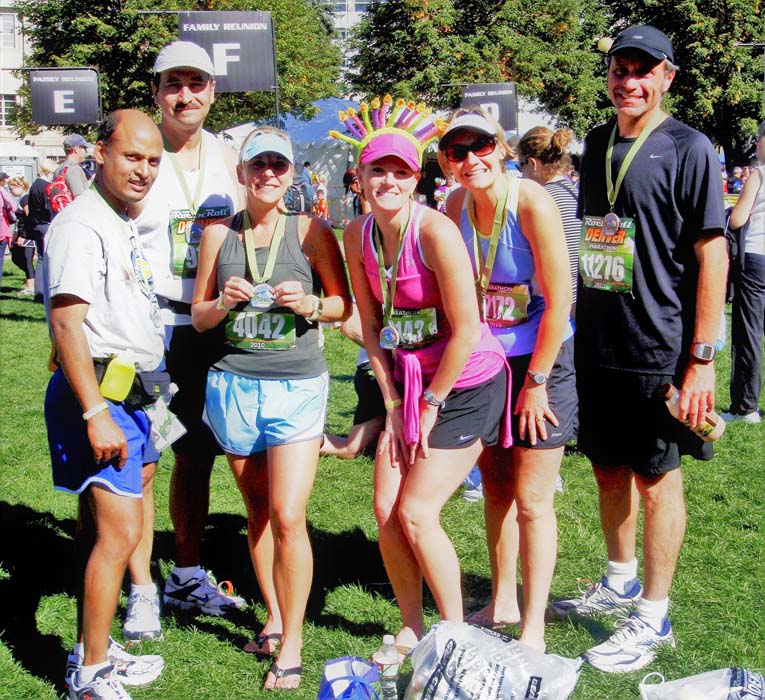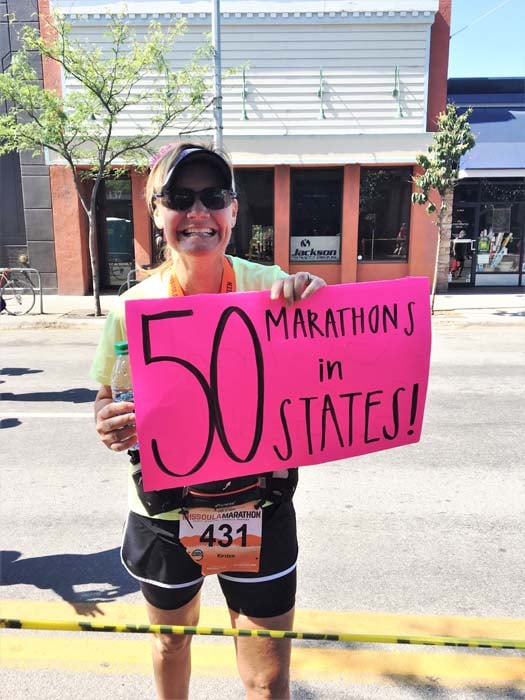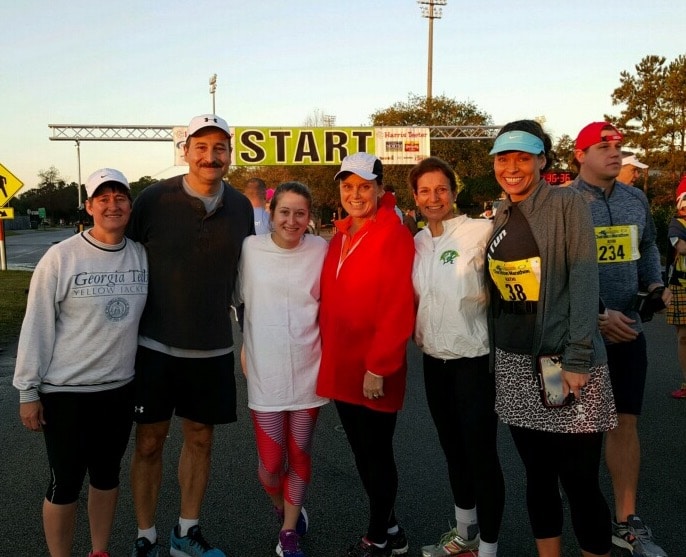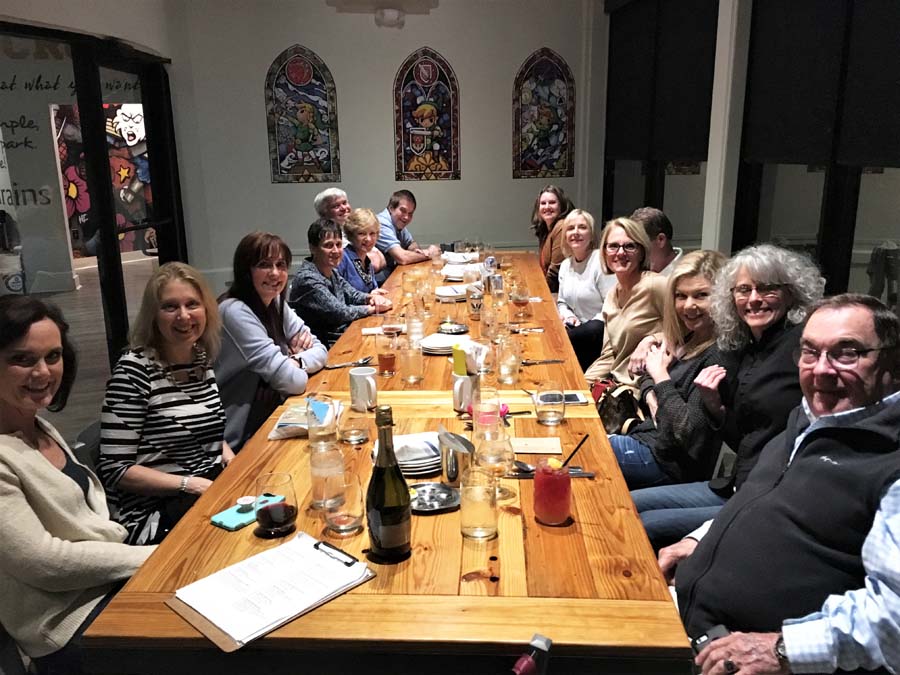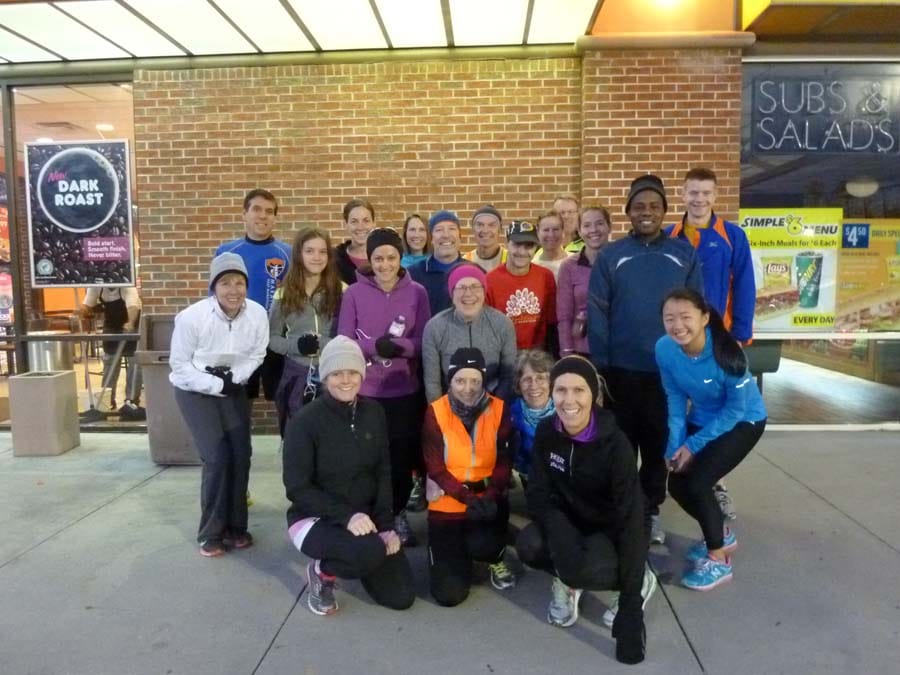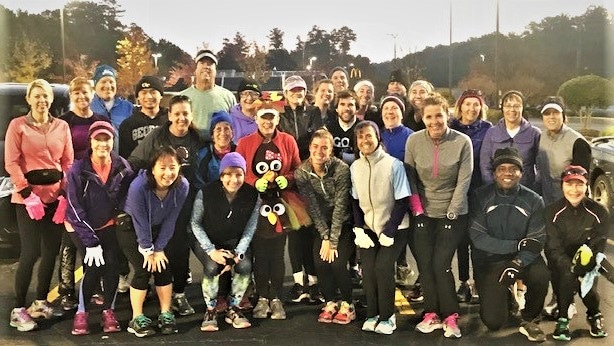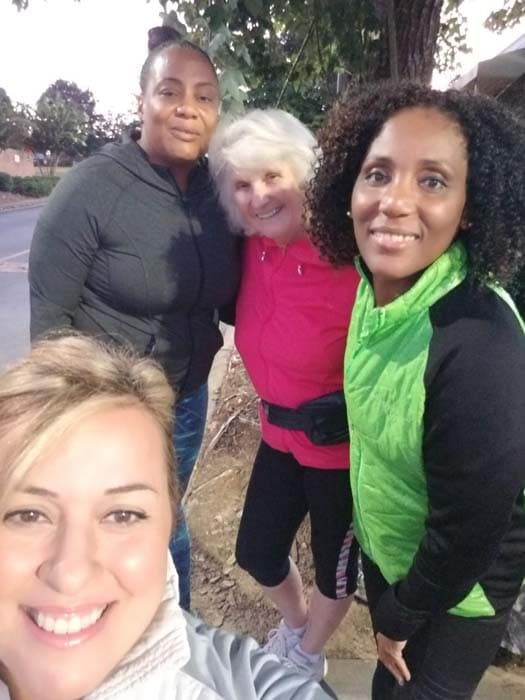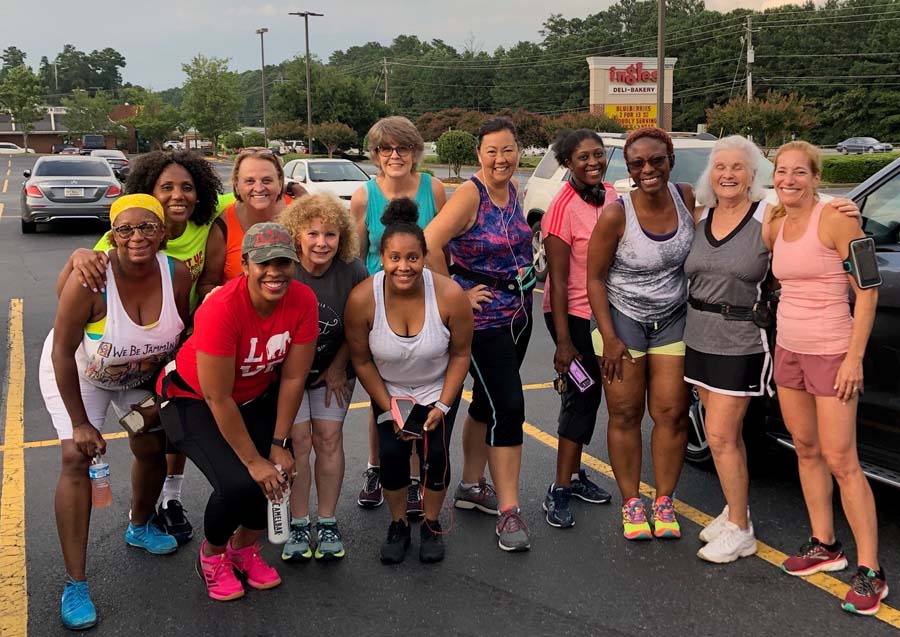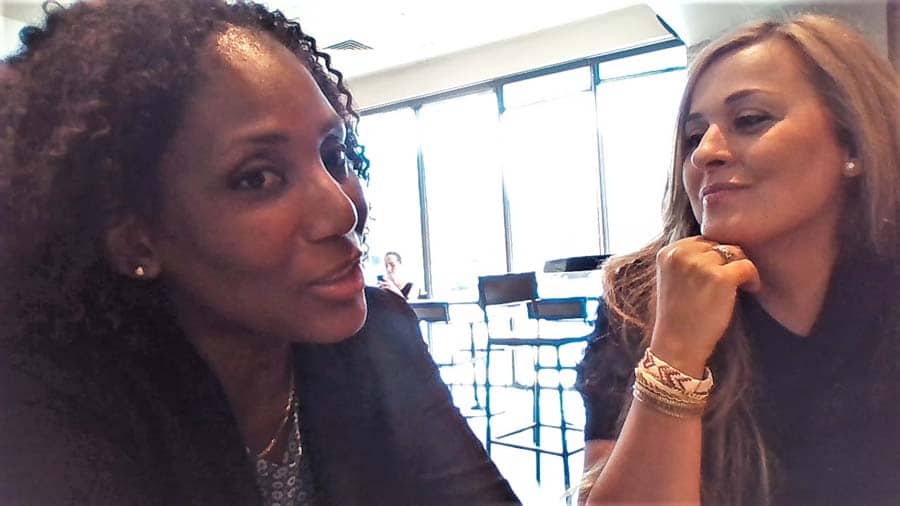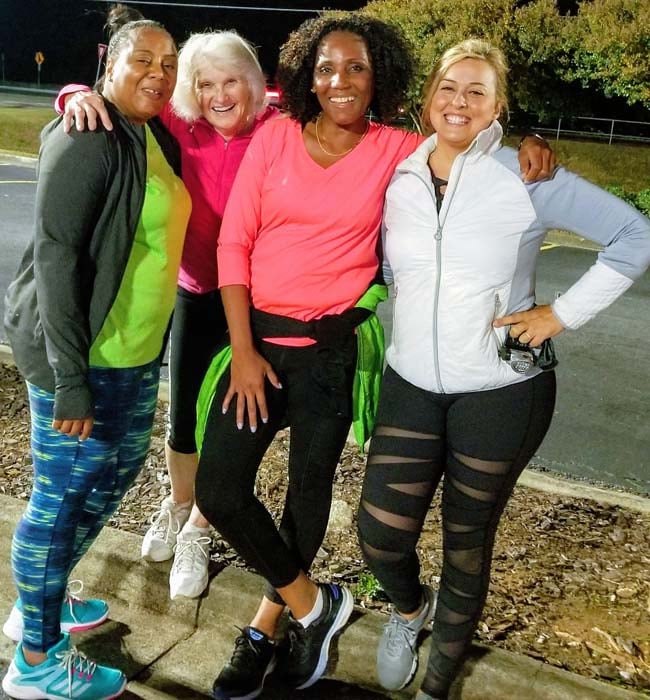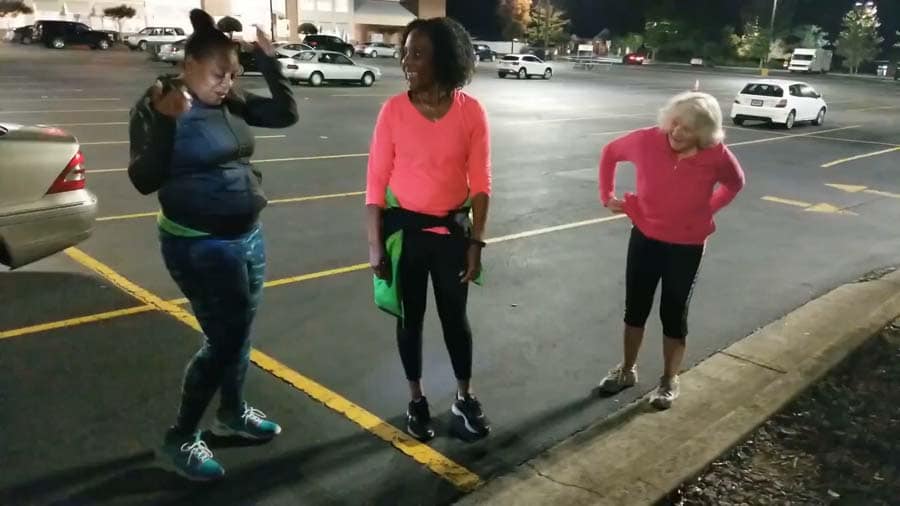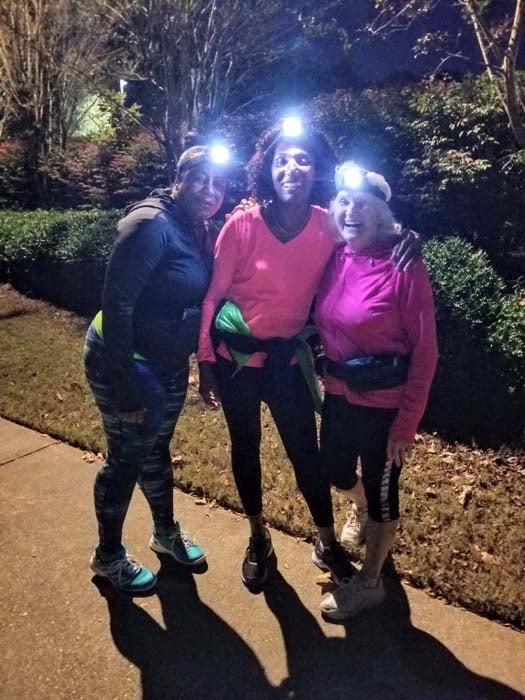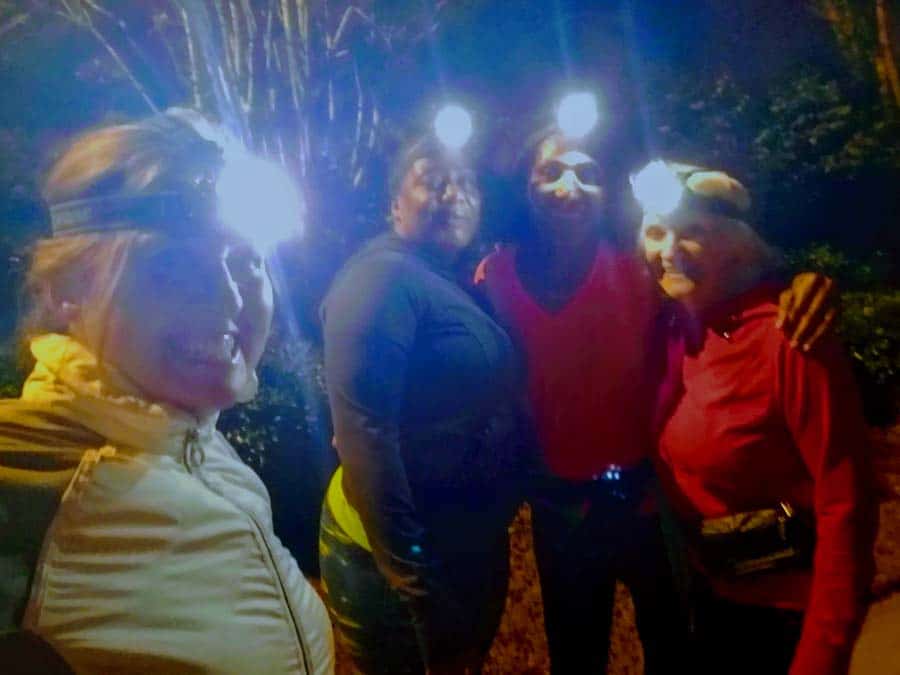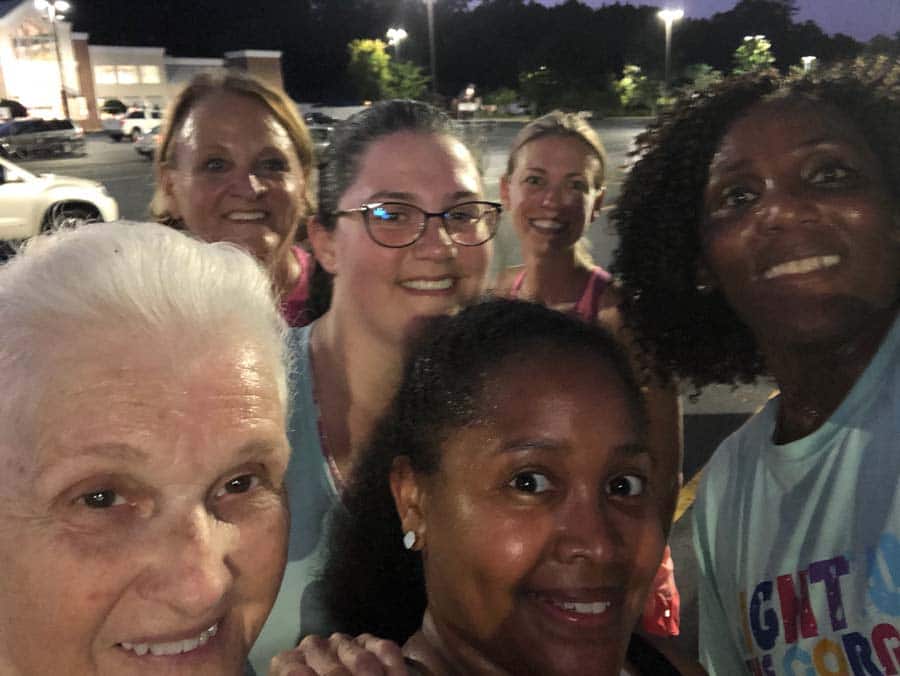Community
Exercise Groups in Peachtree Corners—Fitness & Friendships for The Win!
Published
5 years agoon
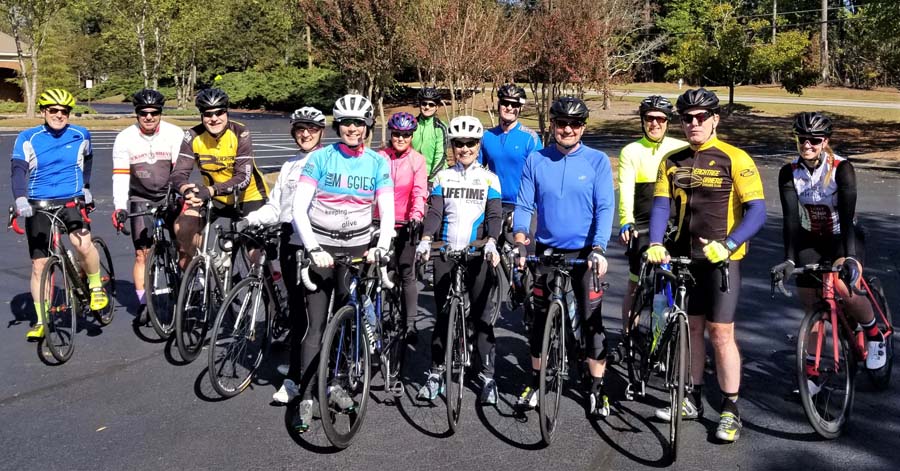
How wonderful to live in our contemporary world brimming with technological and cultural conveniences like cell phones, computers, online shopping for anything from furniture, to clothes, to daily grocery necessities. We can work from home in the comfort of our pajamas and not see a soul all day. Or we drive home from work, close our automatic garage doors behind us, and never have to see a neighbor.
Social norms for the nuclear family have shifted, and more people live alone now than ever in history. It’s not difficult to see why loneliness is more prevalent in today’s society than it has been in previous generations. Modern life is certainly conducive to isolation. We nonetheless evolved to be social beings, with meaningful human relations being as much of a need for our wellbeing as food and water.
Fortunately for us, living in Peachtree Corners with its active residents, well-maintained public spaces, infrastructure, beautiful residential areas and relatively mild weather, provides plenty of opportunities to combat the sedentary and solitary trends of today’s daily grind. Several social groups meet in our city, from those with interests in gardening to knitting to board games. I decided to investigate some active local groups and learned that for both leaders and members alike, the value of these alliances favoring connections and mutual support extends far beyond the exercise.
Loneliness is actually bad for you
Being lonely can cause health problems, shortening your lifespan. It’s not just a platitude when you hear people speaking about the importance of being healthy in mind and body.
“…[S]ocial isolation… [is] a predictor of mortality on par with smoking, obesity, elevated blood pressure, and high cholesterol… [H]ealth care providers assess[ing] isolation in their regular patient examinations, has clear potential to save, or extend, lives.” (Eric Klinenberg, PhD, American Journal of Public Health: Am J Public Health. 2016 May; 106(5): 786–787).
We’ve long been aware of the physical benefits of exercise. Yet have you ever considered that the friendships formed in exercise groups are just as important to your overall health as the exercise itself?
Fitness is not just physical
If joining a group for comradery and exercise seems intimidating, a group of two will do! A partner to keep you accountable and to be your confidant can provide the same benefits for your health.
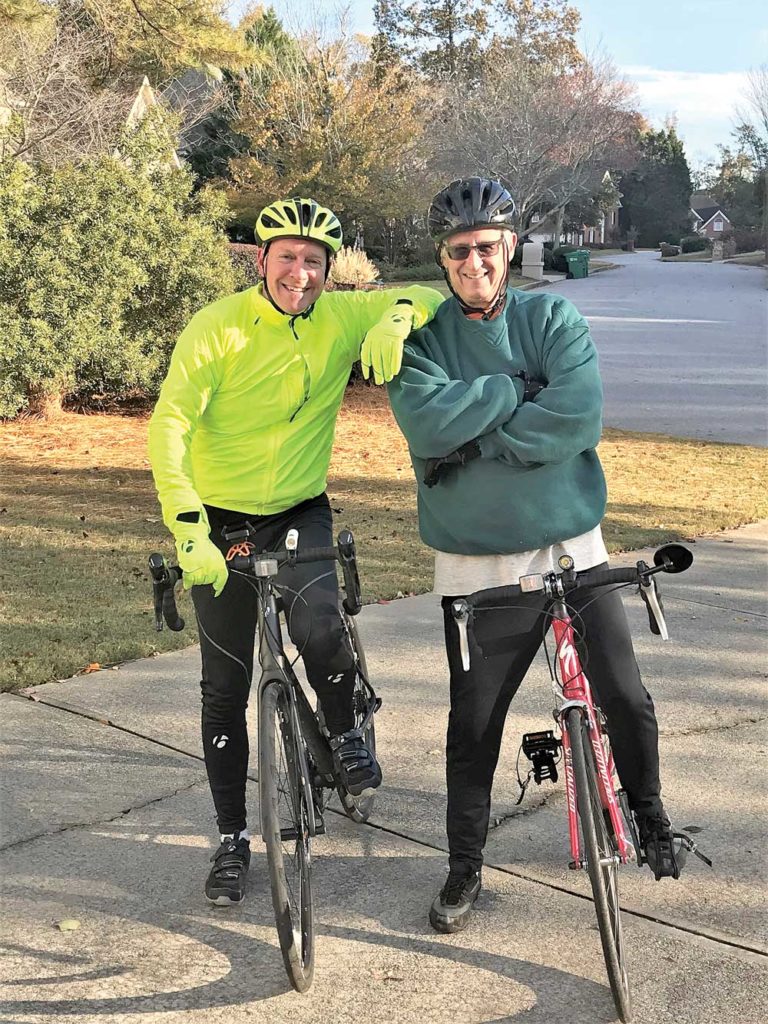
Weare Gratwick, Senior Vice President of Tandem Bank, also serves as mayor pro tem on the city council for Peachtree Corners. He likens his exercise regime three to four times a week with longtime friend, Dr. Gene Witkin, to mental health therapy.
If you live in Peachtree Corners, people walking, jogging, or cycling for fitness is not an unfamiliar sight.
“It really is great that we’ve got a community where there are so many people who are able to participate in exercise activities. They’re out and about. The city, I know, is working very hard to extend both sidewalks as well as our multi-use trails throughout the city. As we continue to expand those that’s going to provide more opportunities for people to walk, jog and ride bikes,” said Councilman Gratwick.
If you’re looking for trail ideas, scooters and bicycles are allowed on Technology Park’s Curiosity Lab, the test track for autonomous vehicles.
“That’s really the genesis of the multi-use trails because we’ve widened sidewalks to 12 feet throughout Tech Park… I know we’re working to connect to a couple of lakes back there. … You can canoe or kayak on the lakes. Our multi-use trail will… continue the loop around the city… It’s high on our priority list.”
You can find Gratwick and Witkin riding their bikes in Simpsonwood Park, which is also a great place to run and walk. They enjoy riding through neighborhoods like North Manor and Amberfield as well.
PC3 (Peachtree Corners Cycling Club)
Randy Bailey, a software sales executive and resident of Peachtree Corners since 1986, well before its incorporation as a city, heads up PC3, a diverse group of road biking enthusiasts who have been riding on Saturday and Sunday mornings, and on Tuesday and Thursday evenings since the early 1990s. He took his love for spin class, which he taught for several years, out on the road.
Andrew Hebert helps him orchestrate the club. You can find them riding with anywhere from five to 25 people. On busy days there can be 50 to 60 riders.
Andrew Hebert and Randy Bailey head-up PC3 (Peachtree Corners Cycling Club) (Photo by Patrizia Winsper) About to leave for a Saturday morning ride October 2019 (Photo by Patrizia Winsper) At Lake pretty scenery but not so clear. The Post Ride festivities are often as much fun as the ride. About to leave for a Saturday morning ride October 2019 (Photo by Patrizia Winsper) Riders meet at Peachtree Corners Baptist Church on Saturday mornings (Photo by Patrizia Winsper) Randy Bailey rounding up the PC3 Group before a Saturday morning ride (Photo by Patrizia Winsper)
The group is comprised of cyclists in their teens to those in their 70s, from a multitude of backgrounds, representing an array of professions: long-haul truckers, people in technology, teachers and doctors. It’s anchored in Peachtree Corners, but they draw members from Roswell, Dunwoody and Johns Creek. “It’s a great, central location where people can get together and ride.”
“There are tons of athletes in the group, people who do other kinds of riding, like mountain bike riding and gravel biking. We’re primarily a road biking group but we support all those other disciplines. It’s a pretty broad sport. There are some who are triathletes so they’re runners too. I’ll have people come back from a ride, put their bikes in the car and then go for a run,” explained Bailey.
Gulp… If like me, you hear that and feel leery about joining a group of hard-core athletes, PC3 is welcoming to all levels. They have some beginners, people who just came out of spin class and want to try it on the road, people who are apprehensive about it. Some, like Bailey, become cyclists because it’s more forgiving on the joints than running and impact sports.
They all coexist harmoniously, even with members on the other extreme, who are nationally recognized racers joining PC3 on their “rest days.”
“There’s quite a bit more to it than just the exercise. That’s important and it’s definitely worthwhile, but it is a lot broader than that.” Bailey conveyed the important social factor of the group. They participate in several activities outside of their shared passion for riding. Stories of great weight loss, support for members having arrived from different countries and personal growth have all come out of this band of cyclists.
It’s amazing how easy it becomes
Member Jenny Johnson shared “PC3 has been one of the biggest reasons I was able to recover so strongly from my knee replacement and the three surgeries following. … I had to start from ground zero in building strength and confidence on the bike. … PC3 was patient enough to allow me to ride, even when I was so slow and in pain those first few months … after surgery. I’ve logged over 1,600 miles on the bike since my knee replacement and all but about 100 miles of those were with PC3.
When I met with PC3 before a Saturday morning ride, member Dena Gaddie told me she was the kid no one wanted on their team because she was not in good shape. She got into cycling as an adult and has gone from being “in the absolute worst physical shape” to being “just one of the pack—good enough to hang with the group. I’m steadily improving. Now I can do 100-mile bike rides. … It’s done a world of good for my well-being, my self-esteem, my social life and my overall outlook on life.”
The importance of sharing the road
It’s sometimes a little scary to get out on the road—even in a car. Bailey said, “I can assure you we don’t want to have accidents because the car always wins. To ride with a group is a way to make it safer. It’s absolutely a way to make it more fun.”
There seems to be a little hostility on behalf of some drivers who think cyclists should ride on the sidewalk. However, bike riding on the sidewalk is actually illegal; in most cases, bikes are to be treated as motorcycles on the road.
Sadly, on September 21, 2019, member Mike Rachelson was struck and killed with 63 miles remaining in an epic adventure—he was an avid cyclist on his second to last day of a 2600+ mile journey from Canada to Mexico along the Great Divide Mountain Bike Route. PC3 will be riding in his memory on May 2, 2020, hoping to create awareness for motorists to drive safely with bikers on the road.
Bailey was lucky to survive being struck by a pick-up truck in 2015, on a ride back from Lake Lanier. He does everything he can to promote improving relations with motorists.
Bikers make themselves as visible as possible, “We light ourselves up like Christmas trees,” he chuckled. His club respects the rules of the road, just as cars should. His message to drivers is simple: “We are not the enemy. We are your friends and neighbors. My goal is not to slow you down…”
I inquired about the proper way to pass a cyclist and learned to allow for a minimum of three feet of distance between the car and the biker for safe passing. And when you see a large group of them riding in single file, know that is the safest way for them to ride. They are also allowed to ride two-abreast on the roadways.
For more information about PC3 visit pc3cycling.com.
The Renegade Runners
This is a troop of about 40 individuals who range in age from their late 30s to age 60. Primarily female, about 80%, some are stay at home moms and several are professionals: doctors, business executives, teachers, real estate agents.
Denver marathon group 10-17-10 -photo courtesy of John Fervier pictured 2nd from left Kirsten’s 50th marathon state – photo courtesy of John Fervier Charleston Half Marathon 2016 – photo courtesy of John Fevrier pictured here, 2nd from left Dining out with the running group (photo courtesy of John Fervier) Thanksgiving day run in PTC (photo courtesy of John Fervier) The Renegade Runners 2018 Thanksgiving Half Marathon (Photo courtesy of Donna Esau)
A Waffle House executive by day, John Fervier spearheads the running group he joined 15 years ago when it was still known as Gwinnett Galloway. Galloway had gotten too regimented—it’s a very formal run/walk process—so they disbanded and formed The Renegade Runners. Their apropos motto is “Do whatever the hell you want.”
They still employ the Galloway method of repeated running and walking intervals. For example, they’ll run for five minutes and walk for one. At its inception, it was primarily a marathon training group. Now it’s primarily a social group of people who like to run an array of races.
“We wanted more freedom with our training programs,” explained Fervier. They meet on Saturday mornings at the Ingles parking lot; 7 a.m. in the summer and 7:30 a.m. in the winter.
There are different subgroups based on pace.
- The Slackers: 2:1 (They run for two minutes and walk for one.)
- The Renegades: 5:1
- Lazy Sux: 7:1. They’re the fastest and they participate in a lot of races.
Some are not training for anything. Some have run over 50 marathons, one in each state. Others are striving to accomplish that goal.
“There is nothing strict about us. We’re a social group that likes to run, or a running group with a drinking problem. We’ve been known to have some mimosas after a run,” Fervier said.
Easily equipped
Minimal gear is required to be a runner. For the proper shoes, Fervier recommends going to Fleet Feet, Big Peach or the new Peachtree Corners store, Road Runner Sports.
“It’s imperative to go to a running store to be fitted with the proper shoes. Shoe selection is based on your running style, body type, weight and the way your foot strikes the ground. Shoes are the most important piece of equipment. They should be replaced every 300 to 400 miles. My shoes will last me half a year. You’re probably going to spend $80 to $140 on a good pair of shoes.”
Fervier also suggests Body Glide, a substance you use on parts of your body that might chafe, to help keep you from blistering. It looks like a deodorant.
Running in Peachtree Corners
Fervier and his group can be seen running on the streets and sidewalks in neighborhoods like Amberfield. In the summer, they may run along the shaded path by the river in Roswell.
They’ve developed 50 different routes over the years, running primarily around Peachtree Corners. They’ll also dart to downtown Norcross and back or up to North Berkley Lake.
A member since 2006, Donna Esau shared how they’ve named and memorized all the routes since they’ve jogged them so often. There’s the “Old Lisa,” “The Infinity,” “The Donut,” and “Three Friends,” to name a few.
Fervier sends an email every weekend containing route, start time and weather information. Routes may differ depending upon which races they’re training for.
“There are great areas for running around here with little traffic. We have hills instead of just straightaways, which helps a lot with training. It’s pretty much a perfect place. And there are great restaurants to go to for breakfast afterwards,” Fervier said.
Running buddies
“You have people who have been running together for more than 10 years. I might be out there for 4 to 5 hours at a time training, so you get to know these people very, very well. You become good friends. When you’re running with somebody for so long, you call him your running husband,” said Esau.
“We’ve all become really close friends. We’ve traveled across the country together running races. We’ve traveled to California, to Hawaii. We have Christmas parties, we celebrate together, and we support each other when we’re going through difficult times,” Fervier explained.
“Typically, our Saturday runs last one to two hours,” he continued. “When you spend five to six hours running with people—training for marathons, we run 20 miles or more—or several hours on the road heading to different marathons, you learn a lot about them.”
Fervier knows of some relationships that sprang from the group. He also described how members can count on one another when dealing with illnesses or during difficult times at home. “You learn a lot about their personal lives and what they go through. When I’ve had my own illnesses, I’ve leaned on my friends in the running group to help me through it,” he said.
To show their support when a member is preparing for longer marathons, some people in the group will run the first 10 miles with him or her, then another set of people will go along for support on the next 10.
“We like people that get along with other people. Those are the people who stay with our group and enjoy it. No drama, no fighting,” said Fervier.
Running is a stress buster
Referring to marathons, during which one person may run for three to six and a half hours, Fervier considers running a great, stress-relieving exercise, “almost like going on a long drive in your car. You remember the beginning and the end of the drive; in the middle you zone out.”
I gasped at the thought of running for 26+ miles, to which Fervier responded, “You get used to it; you’d be amazed. When I first started, I would run one mile and that’s it. Your body gets so accustomed to it. It doesn’t affect you anymore.”
Holiday cheer
Esau described the annual Half Marathon put on by member Rebecca McLaughlin and her husband. “They organize a Thanksgiving Half Marathon every year. They provide refreshments, they cheer people on, they drive the course to make sure people are safe. It doesn’t cost you anything. Unless you want a medal. She’ll order one for you. There is nothing competitive about this group! She also puts on a Christmas run.”
Runners can bring their children, and it’s a fun, relaxing way to burn off some calories from the fabulous feasts.
BGR (Black Girls Run)
I met with Director of Research/Electrical Engineer and BGR lead Prudence Franklin, who explained that there are BGR groups across the country trying to encourage women of all fitness levels to get out and become more active.
1 Before the Run – Oct 2019 (Photo by Patrizia Winsper) BGR picture by Prudence Franklin Interview with Prudence Franklin, Lead of Black Girls Run (Photo by Patrizia Winsper)
While there were BGR groups in Atlanta, there wasn’t one in Peachtree Corners, so Franklin decided to get a team of women together of varying sizes, shapes and capabilities. She posted an ad on the Nextdoor website and women from all over Peachtree Corners, Berkley Lake and Johns Creek answered the call.
BGR meets three days a week on Mondays, Wednesdays and Saturdays. Mondays and Wednesdays at 7:30 p.m. in the summer and 7 p.m. in the winter. Saturdays at 7 a.m. “We try to get out there and do our thing,” said Franklin.
Since August of this year, 30 women inquired about BGR. Initially, 12-14 came out to participate. Now there are about four or five regulars. “We meet at the Dunkin Donuts in the Ingles Plaza,” Franklin said.
Their ages range from late 20s to 70s and all levels are welcome: some are runners, some prefer to walk and others run/walk. Despite the group’s name, Franklin stressed that women of all ethnicities are welcome to join them. Just as Peachtree Corners is diverse, so too is their BGR group.
While the origin of the movement was meant to help improve the health of African American women who statistically have had higher rates of hypertension, diabetes and heart disease, it’s not exclusively for black women. It’s about empowering all women to be healthy. “We want all women out there running and being health-conscious,” said Franklin.
At your own pace—in company
I joined the ladies one evening on a run to Simpsonwood Elementary and back to Ingles. Initially, I feared my speed would not be up to par. I met members Corinda Billington and Tavia Anderson that night. Billington is 70 and in much better shape than I am. She also plays tennis on two different teams. She links up with BGR often and said she enjoys the workout and company since having lost her husband.
It was a relief when Franklin explained, “The whole point of BGR is so women would not be intimidated. The walkers walk with each other, the runners run together and we have the motto: No woman left behind.”
In the end, the runners get back first and they wait for the walkers. Everyone waits until the last people come in. I can attest to this, as on the night I joined them, Franklin could clearly run circles around the rest of us, but she gracefully fell back, doubled-back, checked on us and brought us headlamps for running at night, likely going three or four times the intended distance.
“It’s a running club but we have walkers, run/walkers and runners. We wait for and celebrate everyone upon their return,” said Franklin.
When I thanked her for her efforts and for the great things she’s doing in our city, Franklin replied, “This is Peachtree Corners, we have to keep it vibrant, alive and a good place to live.” Indeed.
Stay tuned for our December podcast on Exercise Groups in Peachtree Corners!
Related
Patrizia hails from Toronto, Canada where she earned an Honors B.A. in French and Italian studies at York University, and a B.Ed. at the University of Toronto. This trilingual former French teacher has called Georgia home since 1998. She and her family have enjoyed living, working and playing in Peachtree Corners since 2013.

Community
Peachtree Corners Shines Bright with Light Up the Corners Glow Race this August
Published
2 days agoon
July 24, 2024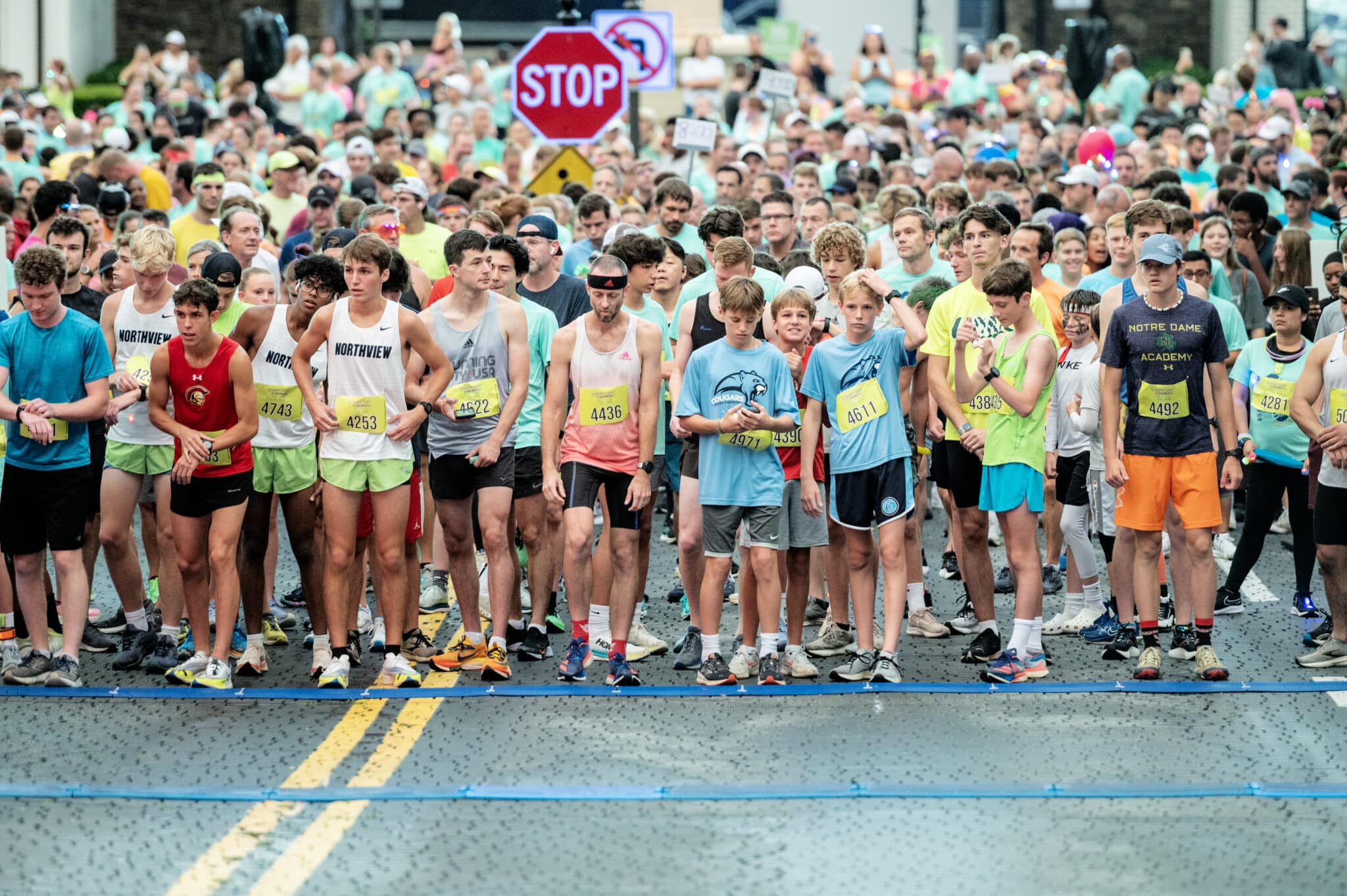
Peachtree Corners’ annual Light Up the Corners Twilight Trot and Glow Race is returning to the Forum on Aug. 10 for its 13th year of building community, getting some exercise and benefitting a very worthy cause.
Amy Massey, the founder of Light Up the Corners, said her inspiration for the nonprofit came from serving on the board of the Fowler YMCA for 10 years.
“I was always looking for ways to raise money for [Fowler YMCA’s] annual campaign. And I rotated off about 12 years ago or 13 years ago. At that time, I was looking for ways to raise money, and the City of Peachtree Corners was talking about becoming a city through UPCCA,” she explained.
“I’m a runner and I was a member of the Y, and we had a running group out of the Y. So, I just recruited some of my running friends and decided we would start a race in Peachtree Corners,” Massey added.
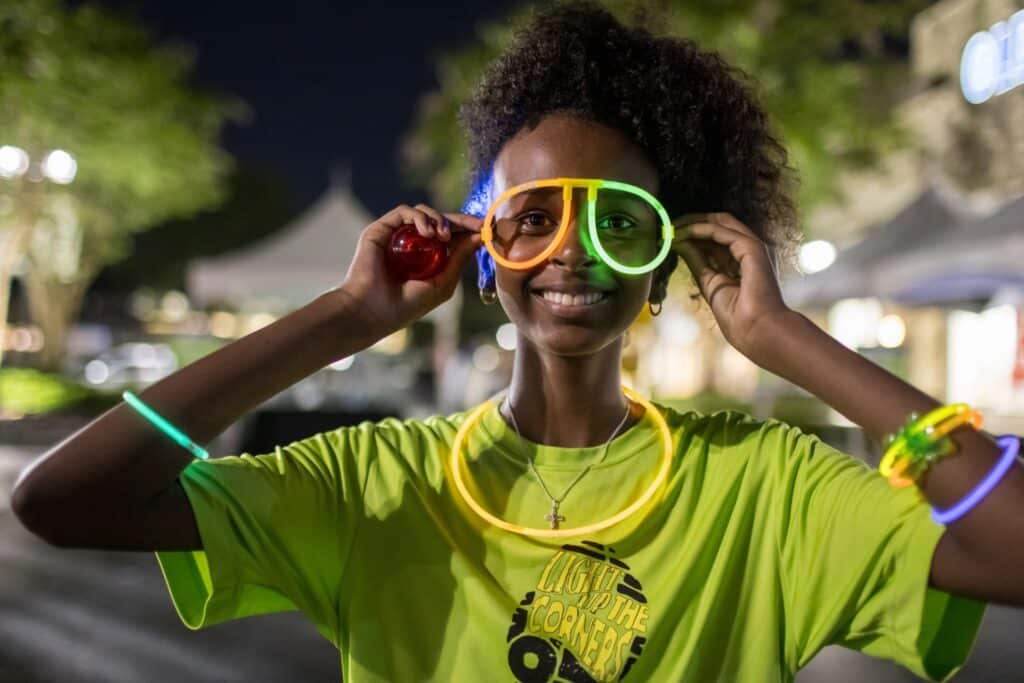
Bigger and better
In its first year, the race had roughly 400 participants. Not a bad turnout for the inaugural event, but Massey and her team of volunteers quickly started brainstorming on how to attract more runners.
“We talked about doing a glow run, and that’s when it changed. So, in year two, we did our first glow run. This year will be our 11th annual glow run and our 12th run altogether. And then we took one year off during COVID,” said Massey.
It’s my baby,” she added. “But I could not do it without the help of my friends and running partners who have been with me all the way. We have some of the same volunteers on our committee now as we did when we started out.”
This year, Light Up the Corners expects over 1,500 attendees.
“There are a lot of glow runs out there that are more of adult-focused parties. But ours truly is a coming together of people of all ages and all walks of life,” said Massey.
“That’s what sets us apart because our largest demographic in terms of age groups is the 10 to 19 range. A lot of school-age kids come out, a lot of young kids with their parents. We have 300 little kids who sign up for the Twilight Trot, which is just half a mile long. And so that attracts the little ones. It’s heartwarming to see people of all ages come together and it’s a healthy fitness-focused, family-friendly community activity,” she added.
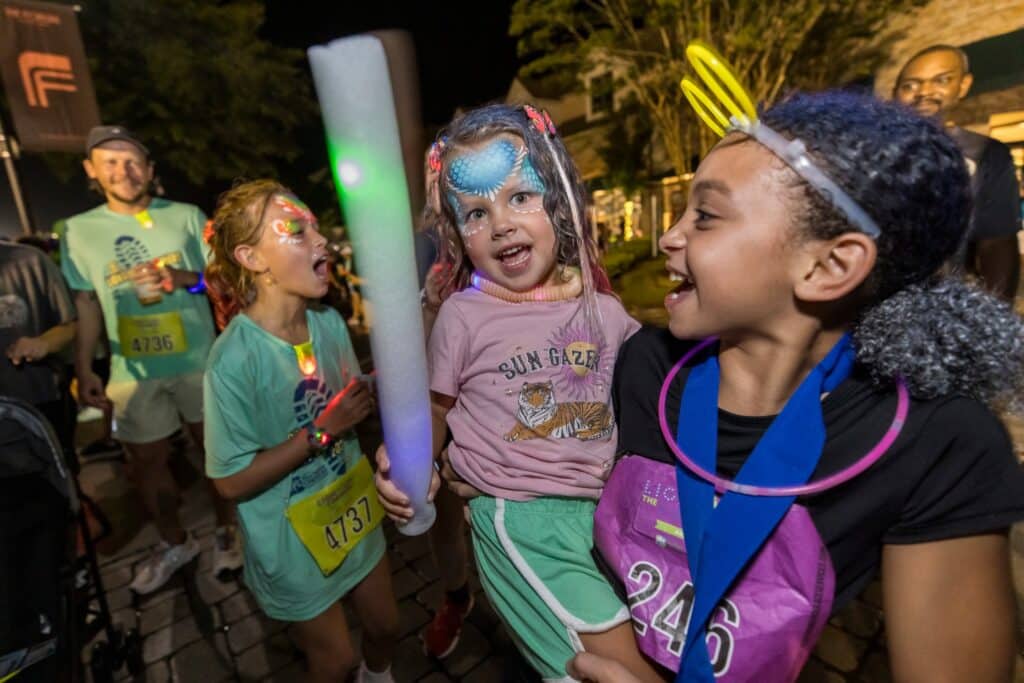
A big, family-friendly party
In addition to two races: a Twilight Trot 1K for the kids, and a 4-mile Glow Race for the adults, the Forum will be showcasing its new plazas. The pre-party and Glow after party will be held on the Grand Plaza which is set to open on that very weekend.
“Each participant gets a lot of glow swag, we want to make sure everybody lights up the course as they’re running around Peachtree Corners, and also to keep them safe so everyone gets that and a glow baton,” explained Massey.
“We welcome runners, walkers and people of all ages. It is more about the fun and the excitement of coming together as a community than it is about racing or setting any speed records,” she added.
The Forum has also hired Yvonne Monet, a radio personality and DJ with Q99.7, to entertain eventgoers and keep the energy up with great music. There will also be face painting and neon fingernail painting, along with roaming entertainers on roller skates and more, courtesy of the Forum.
On top of that, race sponsors will be providing food and samples throughout the night, like pizza, watermelon and a wide variety of other tastings from The Forum restaurants.
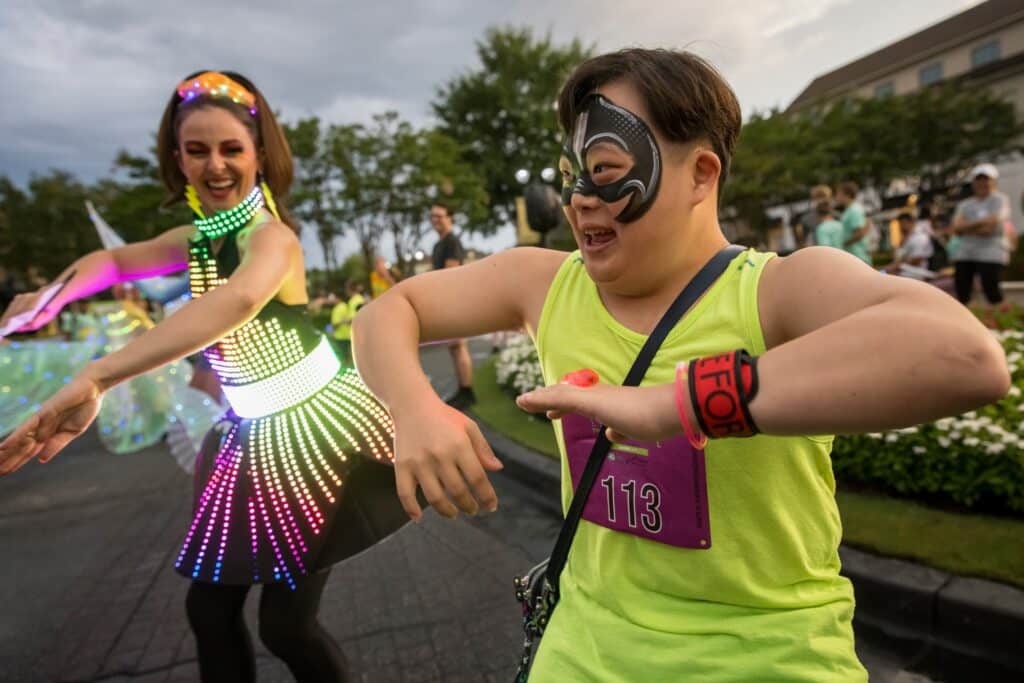
Coming together for a worthwhile cause
Light Up the Corners is an IRS-recognized 501(c)(3) nonprofit run entirely by volunteers. There are no paid positions at all, and 100% of proceeds go to the Why it Matters Campaign at the Fowler Y.
“All money stays local, and it is a passion of our committee to help the Y through this campaign. We believe that all people, regardless of their ability to pay, deserve to benefit from the programs and services at the YMCA. And they have a sliding scale that they use to provide financial assistance to people,” said Massey.
“There’s a wide range of programs and services, and I’ve seen firsthand the work that they do there and the life-changing effects that it has had on so many people in our community,” she added.
Sponsors are also fundamental to the event’s success.
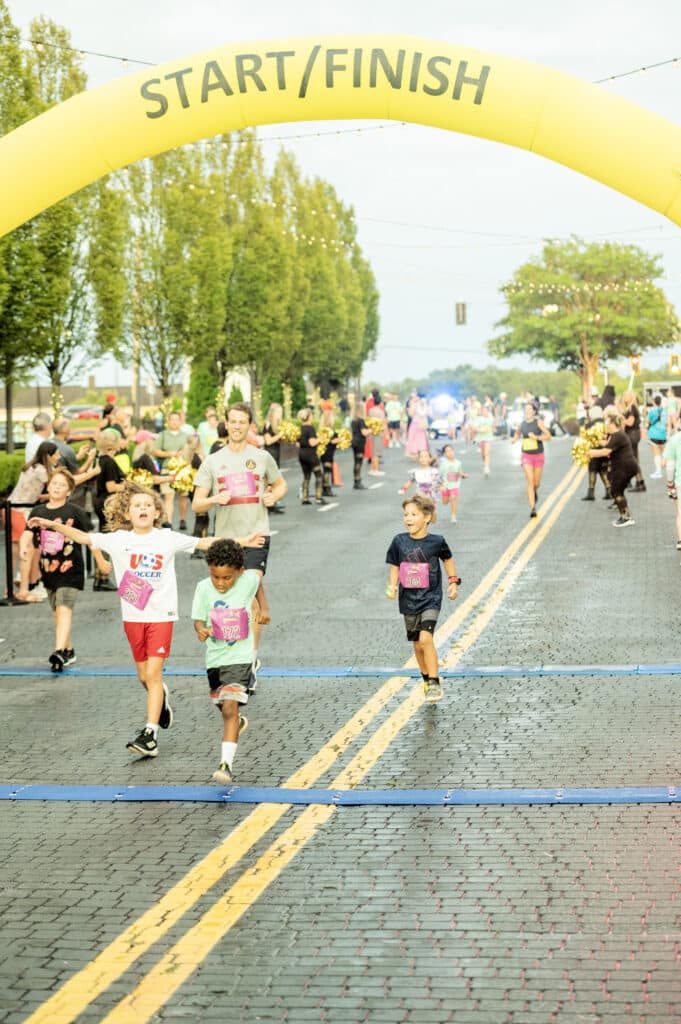
Without the support of sponsorships and generous donations, there would likely not even be a race because the associated costs would cancel out the registration fees, explained Massey. Sponsors allow Light Up the Corners to offset all costs of the event so that 100% of registration fees by individuals go directly to the YMCA.
“I will say that North American Properties, when acquired The Forum, have gotten behind this event 110%. They have been amazing in their support and generosity in providing the tents, the entertainment and the backbreaking work of setting up something like this,” said Massey. “We couldn’t do it without them or the City of Peachtree Corners which has been a title sponsor since day one.”
Fun fact: For the first time, Light Up the Corners held an open competition to see who in the community could design the best t-shirt logo for this year’s race. Daniel Lee was chosen out of over 30 submissions and was awarded $1,000 for his efforts.
To participate in the annual Light Up the Corners Glow Run, register at lightupthecorners.com or simply line up on the racecourse and cheer the runners on as a spectator. To become one of over 200 volunteers, email Amy Massey at amassey@runthecorners.com.
Related
Community
Twin Authors Chronicle Antics of ‘Four-Legged Brother’
Published
2 months agoon
June 6, 2024
Berkeley Lake second graders make fans across the globe with sweet children’s story.
When rescue dog Apollo found his forever home with Megan and Mackenzie Grant, the Berkeley Lake twins knew they had added a special member to the family. He’s so beloved that he’s considered their “four-legged brother.”
Apollo is a Boston terrier. The breed is known for its friendliness and love of people and children. According to the Purina Company, makers of all kinds of pet food, Boston terriers make affectionate pets and are outgoing and social.
While they are called ‘terriers,’ they are not in the terrier group, nor do they behave like them. They are far happier at home with their owner than getting into the usual mischief.
But Megan and Mackenzie see him as a silly addition to the family.
“He’s super cool because he’s always up for fun and loves us a whole bunch. And guess what? We love him back even more! He’s like the best friend ever, wagging his tail and making everything awesome!” they said in a press release.
Apollo’s birthday inspiration
As his first birthday approached, the girls, six years old at the time, wanted his day to be special.
“I said, ‘Well if you want to come up with something to do, let’s write it out,’” said mom Tameka Womack. “So they started writing out all these different adventures, and it was so cute.”
Megan recalled that their teacher had told them about someone who had published a book, and she asked if they could, too.
“When I read through it, they had all the different things, like playing dress up because we had bought some clothes for him. And we take them out for long walks around the lake and stuff,” Womack added.
Although their favorite subjects in school are PE and art, they did such a good job with the tale that Tameka worked with them to get it published. On Feb. 1, the young authors released the children’s book, “How We Love Our Four-Legged Brother.”
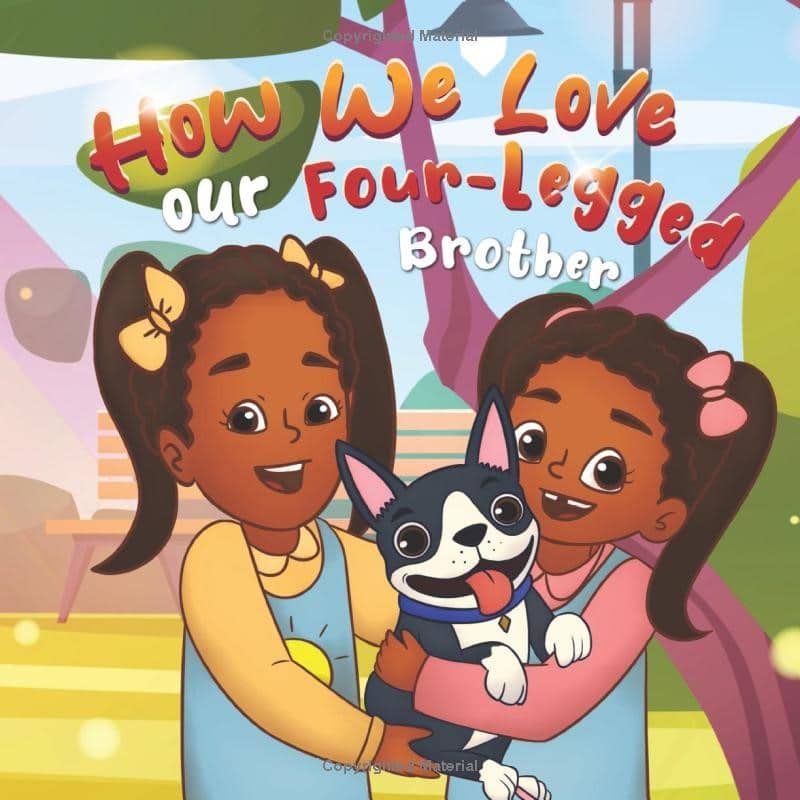
Publishing success
The 30-page book took off almost immediately. Available for print and digital through Amazon and print editions through Barnes & Noble, the book has reached customers in the U.K., Germany, France, Japan, Canada, Australia, Sweden, the Netherlands, Italy, Poland and throughout the U.S.
The girls and their mom were so pleased and surprised to find out the book was No. 1 in its category on Amazon.
“They were just so excited that people actually bought the book,” said Womack. “They were just like, ‘Wow, who is buying this?’”
Feedback from fellow twins, animal lovers and teachers showed that the story resonated on many levels.
“As an educator, I am always on the lookout for diverse and inclusive literature for my students. ‘How We Love Our Four-Legged Brother’ not only captivated the imaginations of the children in my class but also served as a wonderful conversation starter about friendship, empathy and the beauty of diversity,” wrote Ashleigh Darby.
The royalties from book sales are tucked away, with a percentage going to Apollo’s wardrobe.
“He won’t go out in the rain without his raincoat … or out in the winter without his sweater,” said Womack. “We have a little budget for his clothes because every time the girls see something, they’re like, ‘Oh, I think Apollo will like it.’ I’m like, I think he would too, but let’s let it stay in the store.”
Nurturing creativity
Although both mom and dad are engineers and kind of hoped that the twins would follow in their footsteps, Womack said she’s okay with them being artistic and creative.
“Writing is teaching them some responsibility and teaching them a little bit about money,” she said. “Now they want to write a book every day.”
Between raising three daughters (the twins have an older teenage sister), running a household with her husband and keeping up with her career at Georgia Tech, Womack said she’ll look for time to continue helping the girls with their dreams.
“With summer coming up, I would definitely encourage parents to help their children explore their creativity in any kind of way, from digging holes in the ground to … seeing the world … to creating books instead of being on the internet,” said Womack. I try to limit my kids’ screen time … and build real memories.”
Find “How We Love Our Four-Legged Brother” on Amazon.
Related
Community
Local State Reps Give Roundup of Legislative Session
Published
2 months agoon
May 28, 2024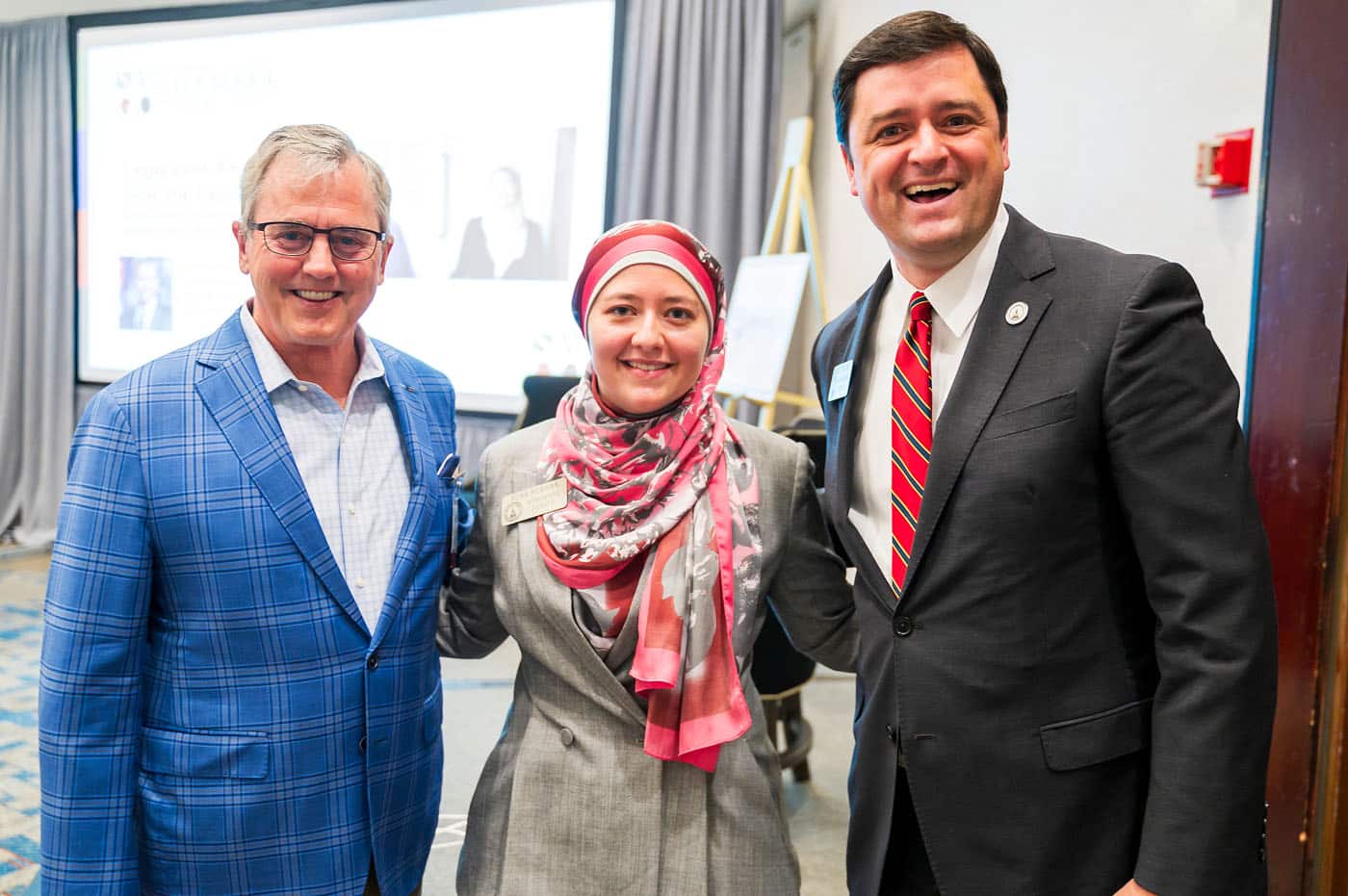
Hilton, Romman trade friendly banter that reflects diverse views in Georgia government
Georgia State House District 97 Representative Ruwa Romman and District 48 Representative Scott Hilton, whose constituents include parts of Southwest Gwinnett County, including Peachtree Corners, sat down for a second time to share information about legislative action at the State Capital.
Their discussion was part of the Southwest Gwinnett Chamber of Commerce First Friday Breakfast series at Atlanta Hilton Northeast.
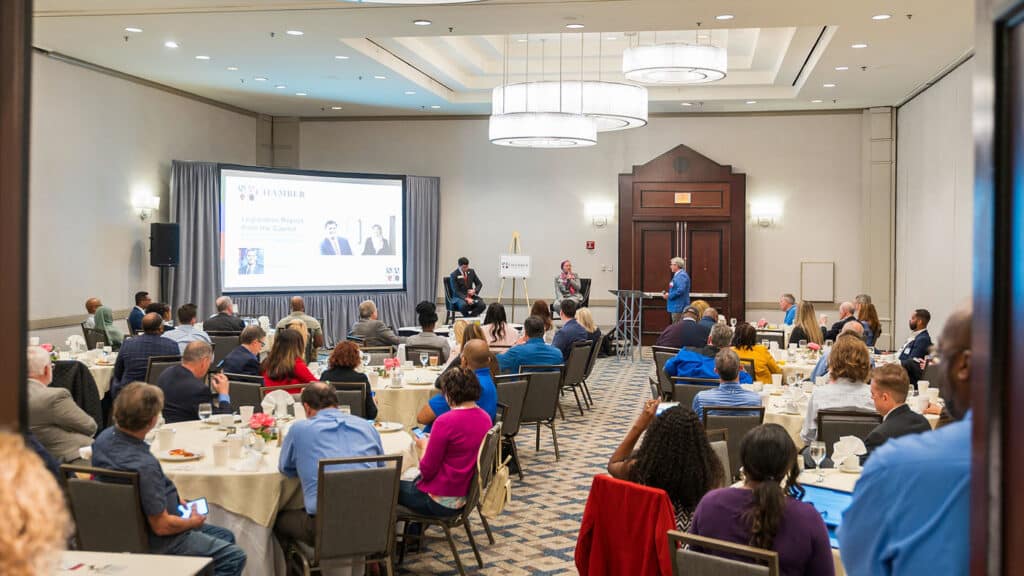
Although they sit on opposite sides of the aisle, Hilton and Romman both seek to sponsor and pass legislation that improves and maintains a high quality of life in the Peach State and provides its residents with what they need.
Elected in 2022, this was Romman’s sophomore year in the State House. She serves on the Georgia House Energy, Utilities and Telecommunications Committee, Georgia House Information and Audits Committee and Georgia House Interstate Cooperation Committee.
Hilton previously served in the State House from 2017 to 2019 but took a “sabbatical,” as he calls it, to serve as executive director for the Georgians First Commission under the Office of Governor Brian Kemp.
He was re-elected to his current position in 2022. He is the vice chair of the Georgia House Creative Arts and Entertainment Committee and the Georgia House Education Committee, as well as a member of the Georgia House Public Health Committee and the Committee on Georgia House Urban Affairs.
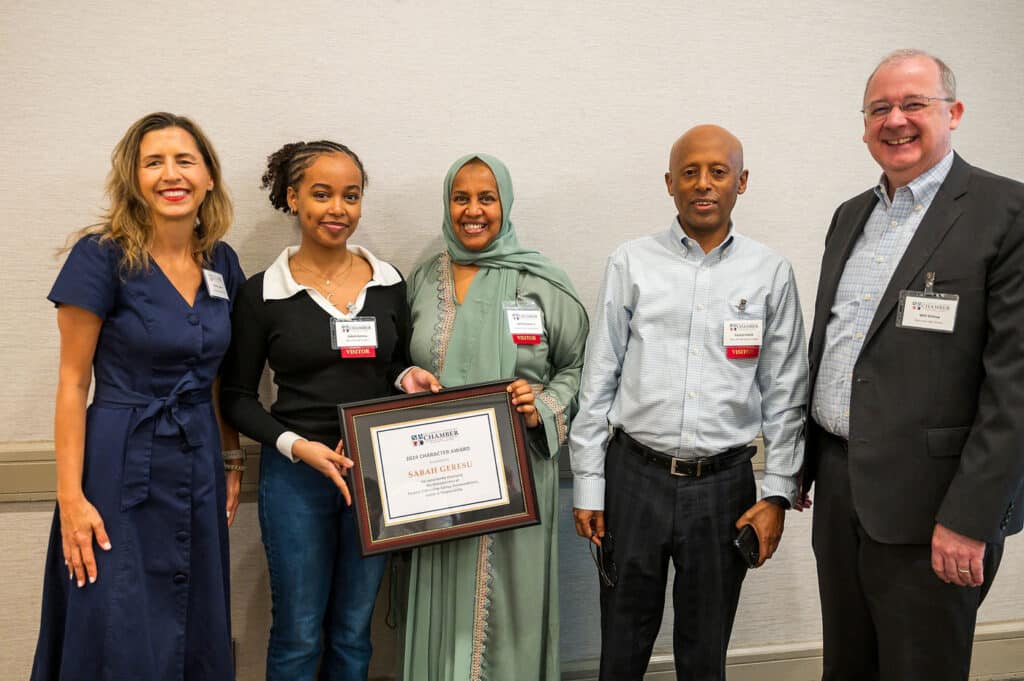
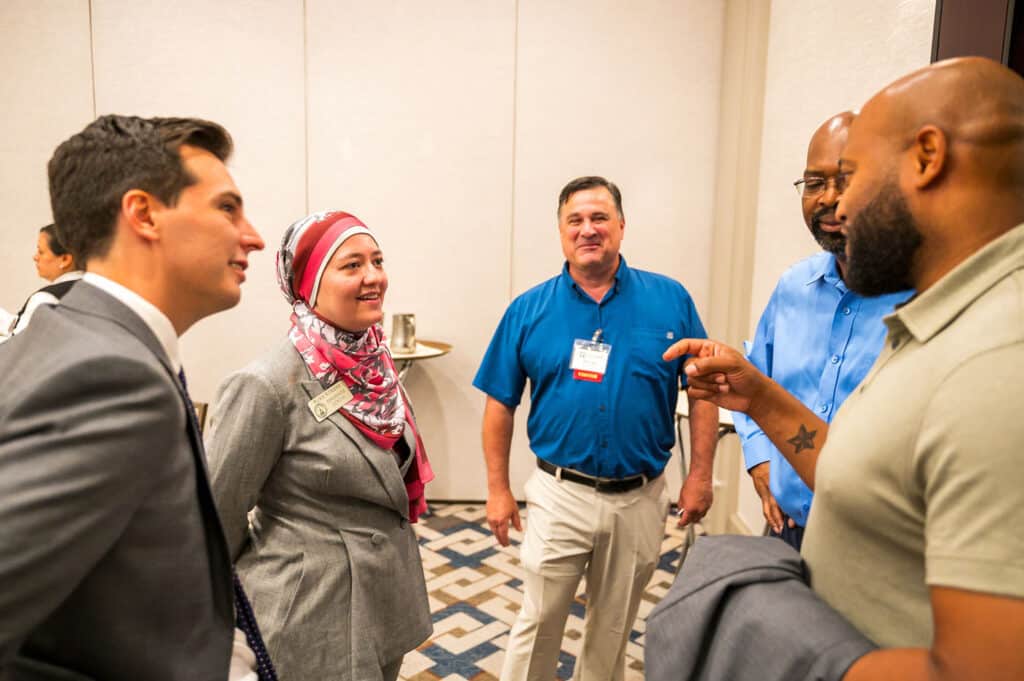
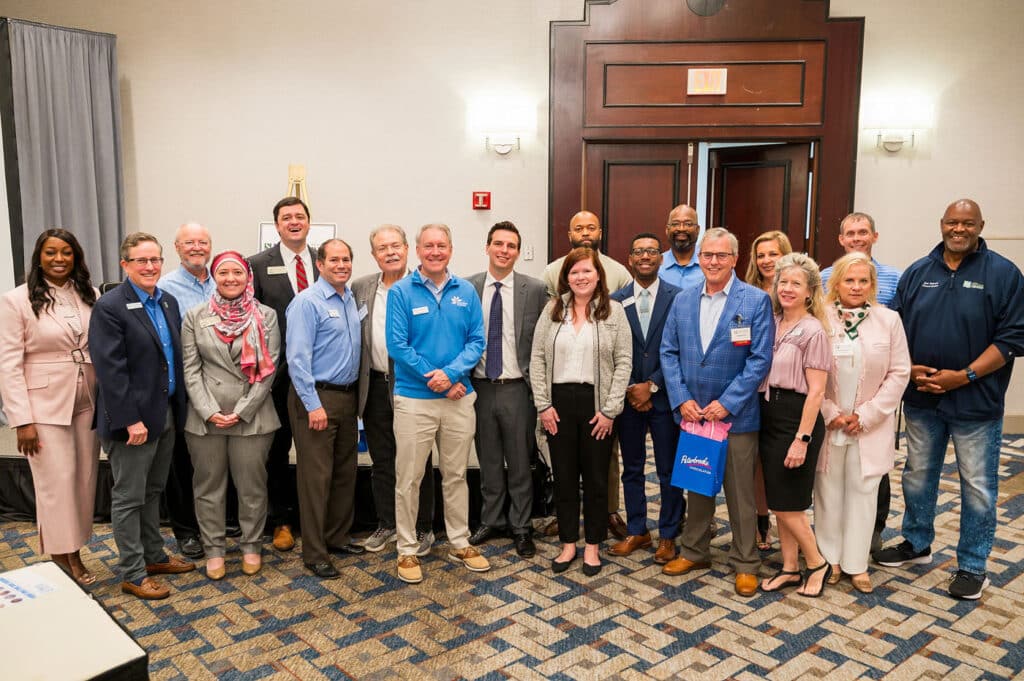
Senate Bill 63
The moderator, Norcross resident and former WAGA political reporter Dale Russell started off with a topic making headlines: Senate Bill 63. This law, signed by Gov. Kemp shortly after the session ended, prohibits charities, individuals or groups from providing bail funds for more than three people per year unless they register as bonding agencies. It also expands mandatory cash bail to 30 new offenses.
“I think it’s going to bring home safety to the community,” said Hilton. “I ran on that issue because as I was knocking on doors, I’ve heard from folks who [want to] keep our community safe. And unfortunately, no community has been immune from the uptick in crime that we had seen post-COVID, so this was one of those bills in response to that.”
Hilton gave examples of crimes where individuals out on bail committed acts such as murder.
“That was our commitment back to our constituents to say, ‘Listen, we’re not going to let bad guys back out onto the streets again to do more crime.’ This bill was in response to this; it’s going to keep our community safe, hold those accountable and bring justice to those who break the law,” Hilton remarked.
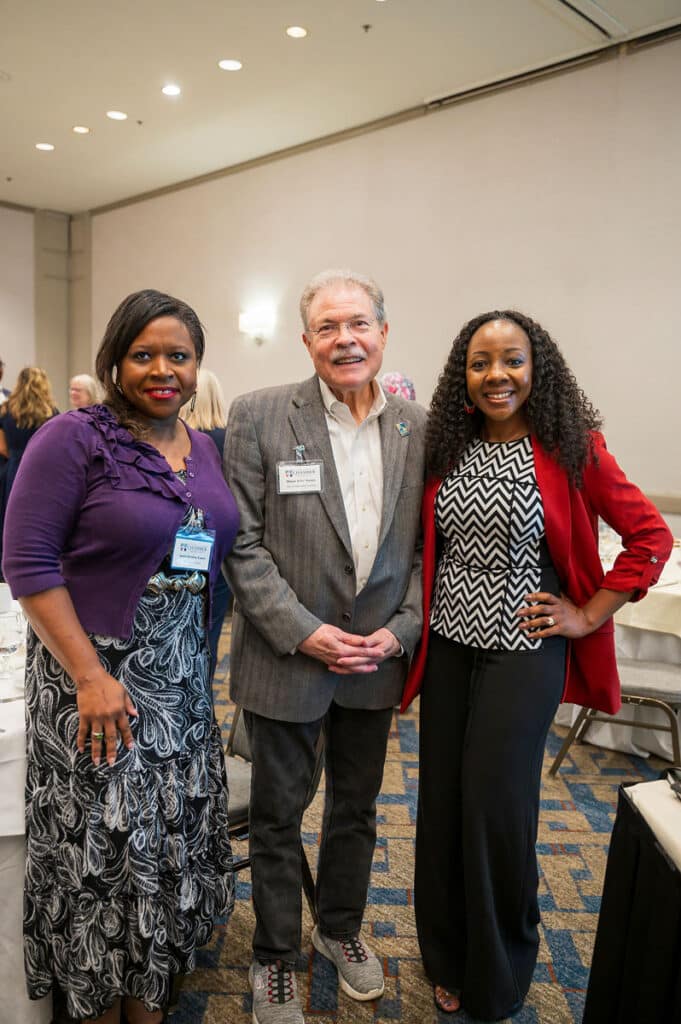
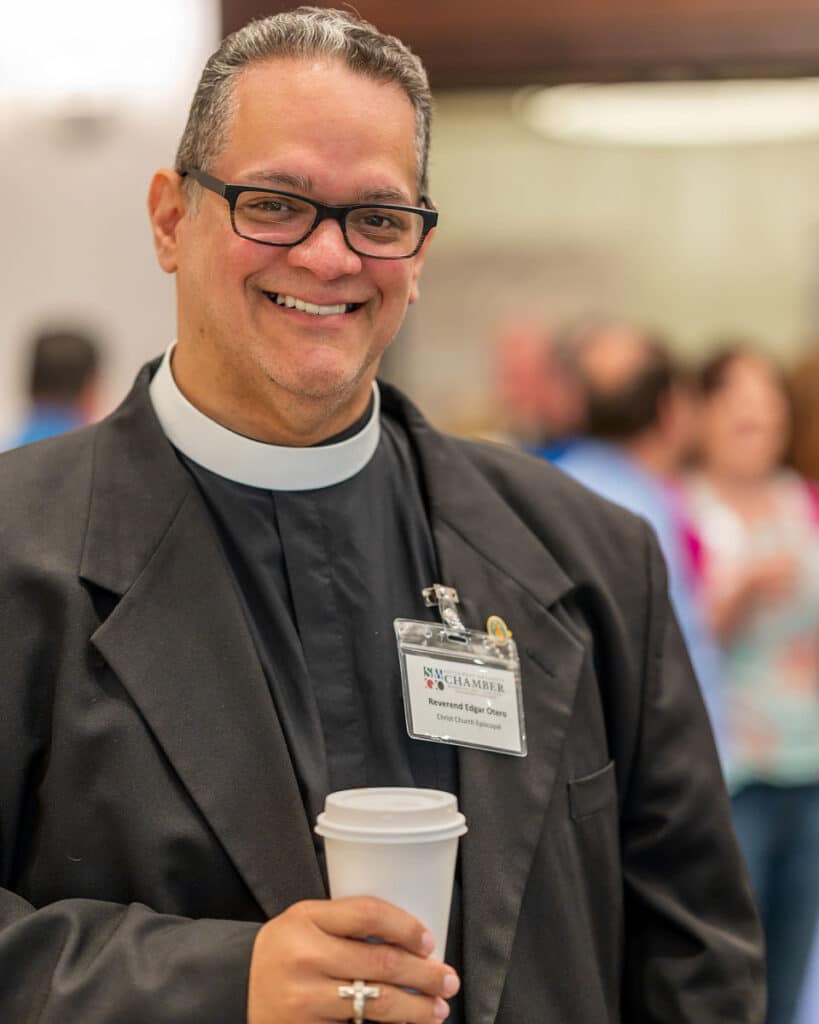
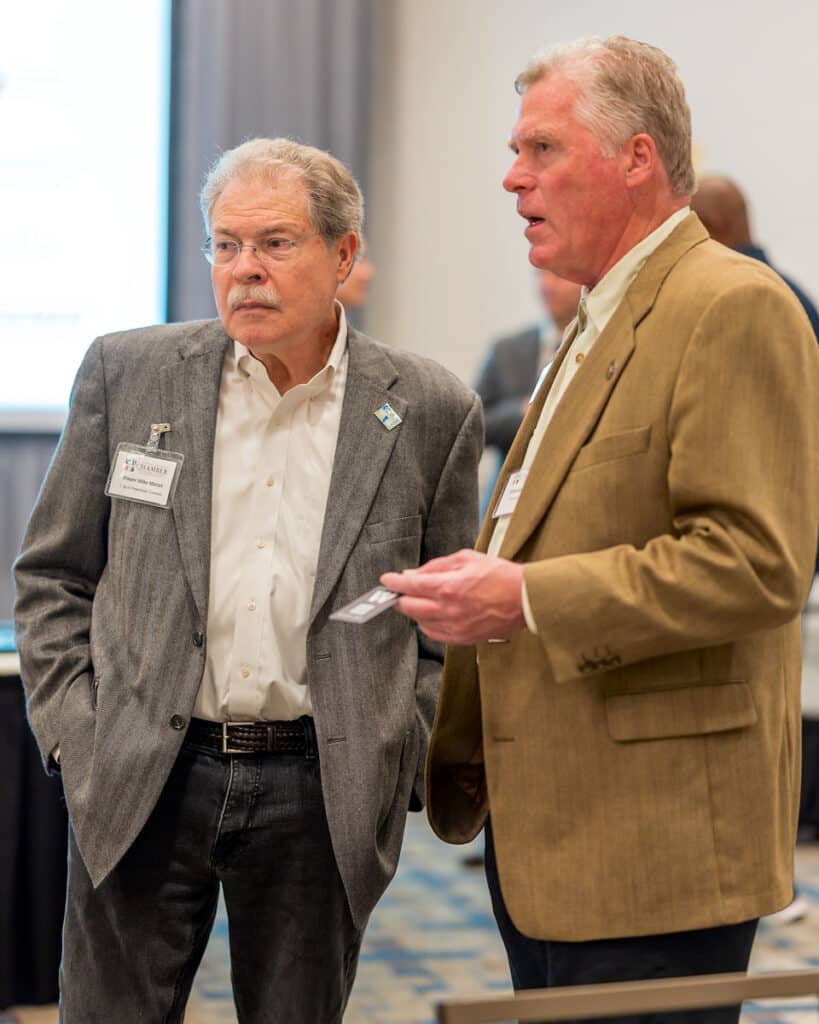
“Unfortunately, right now, we’ve got district attorneys and sheriffs across Georgia who are blatantly disregarding the law and letting folks back out on the streets who pose, you know, safety risks to law-abiding citizens like you and I and your businesses,” he continued.
Russel pointed out that there’s been a lot of criticism of this law.
“The ACLU was totally against it. Some felt like it was imprisoning poor people in the sense, for minor crimes,” he said.
“I do agree with the criticism for a few reasons,” said Romman.
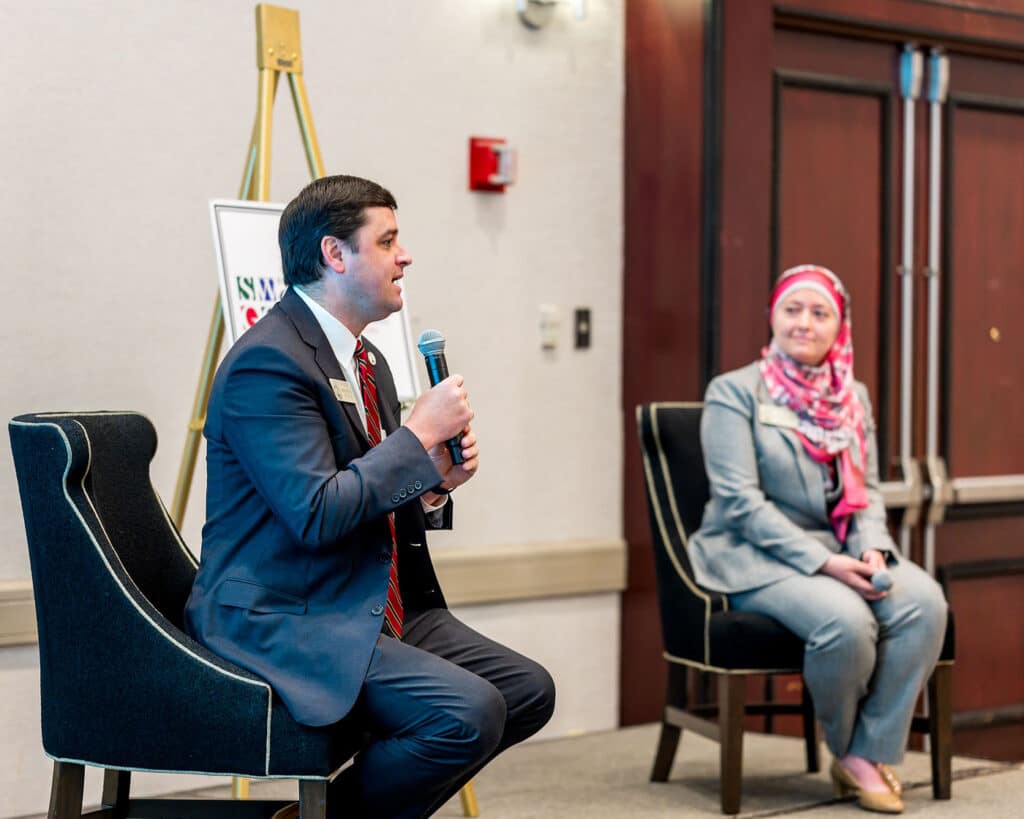
“The problem with this bill is that of the 30 crimes that are listed as now requiring a cash bail, the majority of them don’t actually require jail time, even if you’re found guilty of them. So now, somebody who would not even have ever served time for those crimes that are listed could now serve jail time because they cannot afford their bail,” she explained.
She added that the law doesn’t address the crimes it’s supposed to protect citizens from.
“We see these headlines, but this bill doesn’t address those because what we see happening is that a lot of churches now will no longer be able to bail people out that cannot afford their bail because of this bill,” she said.
“And churches that have been trying to, for example, reunite a parent with their children for Christmas, or whatever the case may be, can no longer do that. There is actually an exception written into this bill for bail bondsmen. So, it’s not like being able to pay cash bail is completely out of the question. It just means that somebody can make money off of it now,” Romman continued.
Hilton said the state isn’t done with addressing public safety issues as they come up.
“I know that’s been a priority of the governor, and I think rightfully so; you know, there’s a reason we’ve got citizens flocking to Georgia over the last ten years; we’ve added a million Georgians to our state, and they are leaving states with policies that don’t have this. They’re coming to Georgia for economic prosperity, for safety and for good schools,” said Hilton.
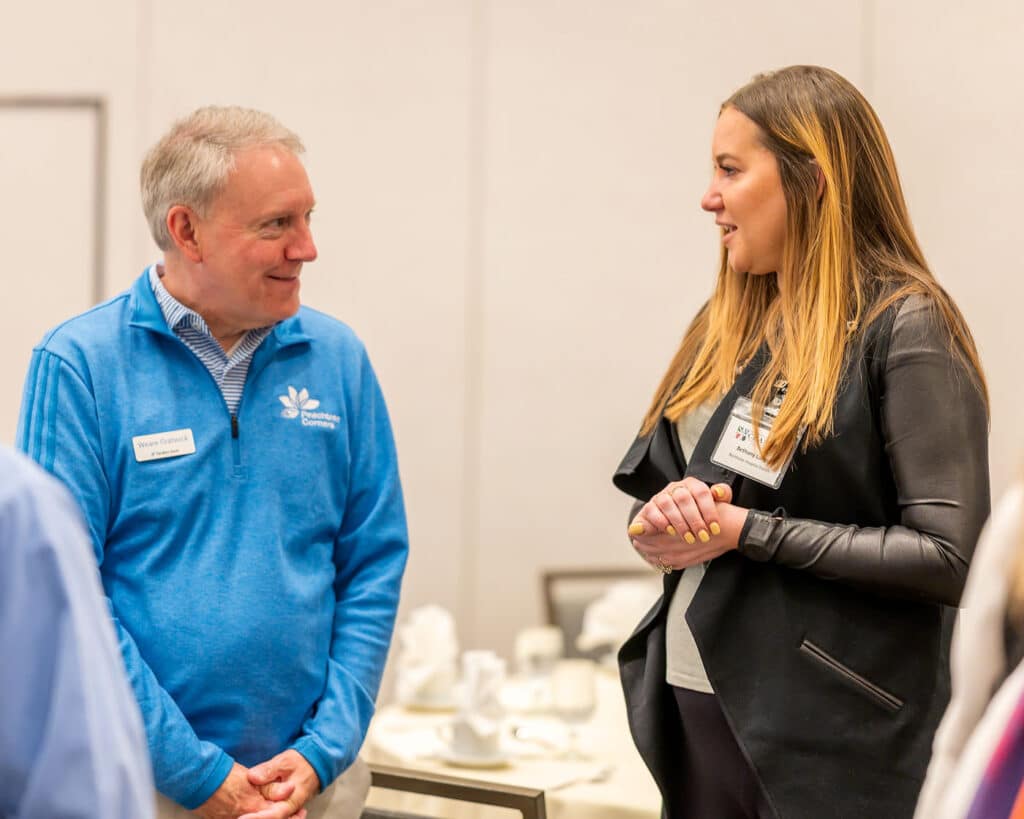
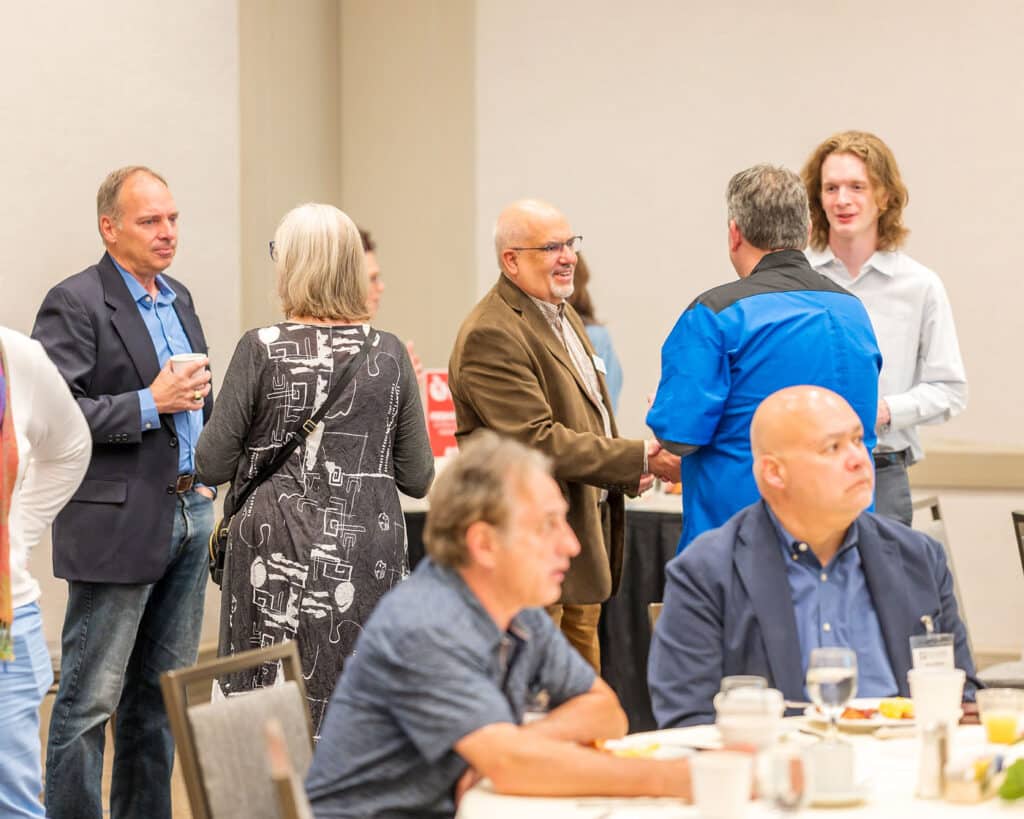
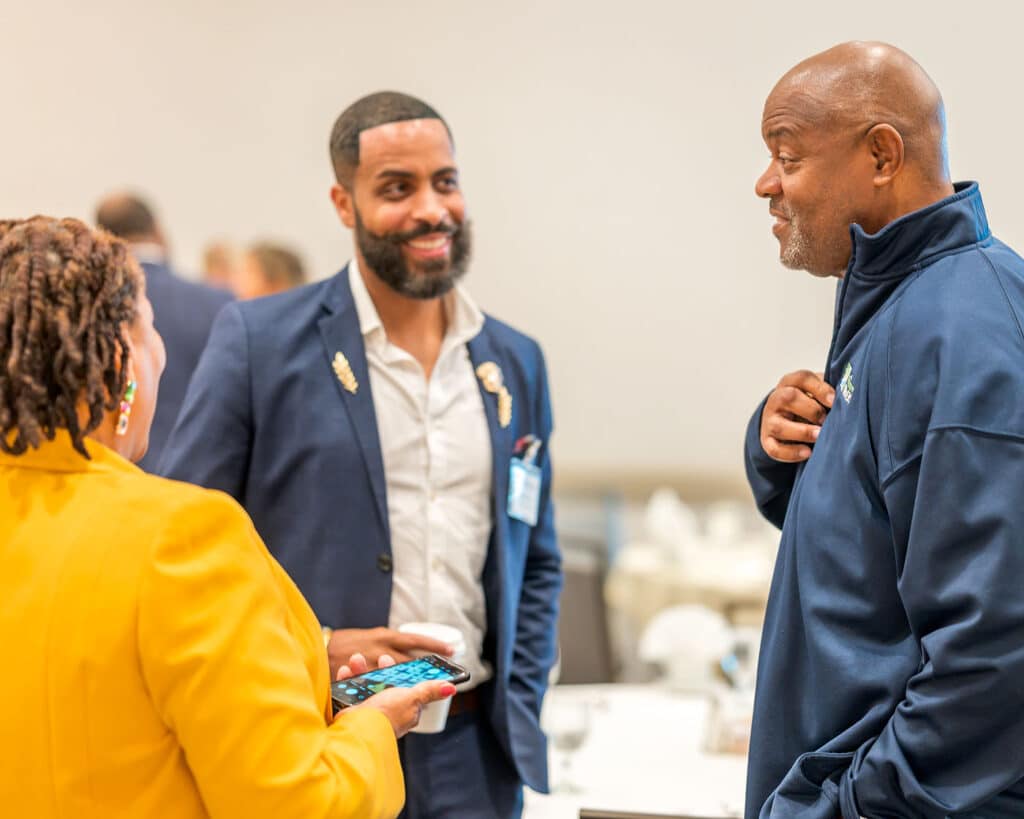
House Bill 1105
Another controversial bill, HB 1105, is framed as a public safety bill that requires local enforcement to coordinate with federal immigration officials when someone in custody is suspected of being in the country illegally.
Some say it’s an immigration bill.
“I know that the federal administration is trying to tell us there’s not a crisis. But there is a humanitarian crisis going on right now on our southern border. … But they’re not handling it the right way, and it’s starting to impact our communities,” said Hilton.
“We’ve got sheriffs who have folks in their custody, who [need] to be reported up to ICE. And essentially, they’re sort of ignoring what’s in the law right now that says you got to report these folks,” he explained.
Romman doesn’t see it that way.
“Again, when you read the contents of the bill, that is, unfortunately, not what it does,” she said. “I’m one of the few, if not the only, member of the legislature that’s done any border project work,” she remarked.
She talked about her work keeping unaccompanied immigrant minors safe.
“I want to remind people that when we talk about immigration, there’s an entire spectrum of people that we are talking about. And it’s not just at the border, it’s also people that fly into our country legally, that gets narrowed into a terrible immigration system,” Romman said.
“It forces our state and county and city police to do federal-level work without more funding. What we’re doing is we’re actually adding an increased burden, essentially onto their workload that we are not paying for. And in addition, within this bill, if they do not do this, they could lose more funding.”
She added that this will take the police away from focusing on local issues and trying to work with people who live in their communities.
“If a community member feels like if they reach out to police for help, and the police are going to deport them, they are less likely to report crimes and less likely to work with our local police department,” Romman said. “If we’re serious about immigration and its relationship to crime, immigrants are 30% less likely to commit crimes, and I don’t want to vilify an entire group of people.”
Romman said she supports a holistic, three-pronged approach that includes improving conditions on the border and pathways to citizenship.
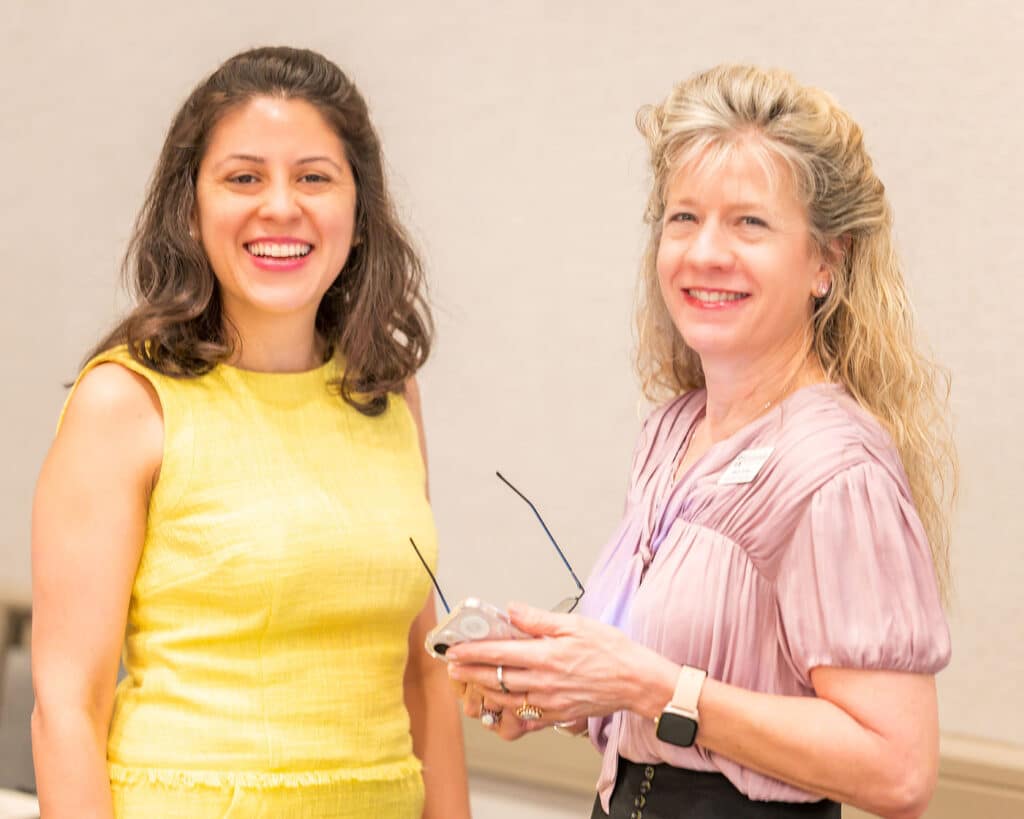
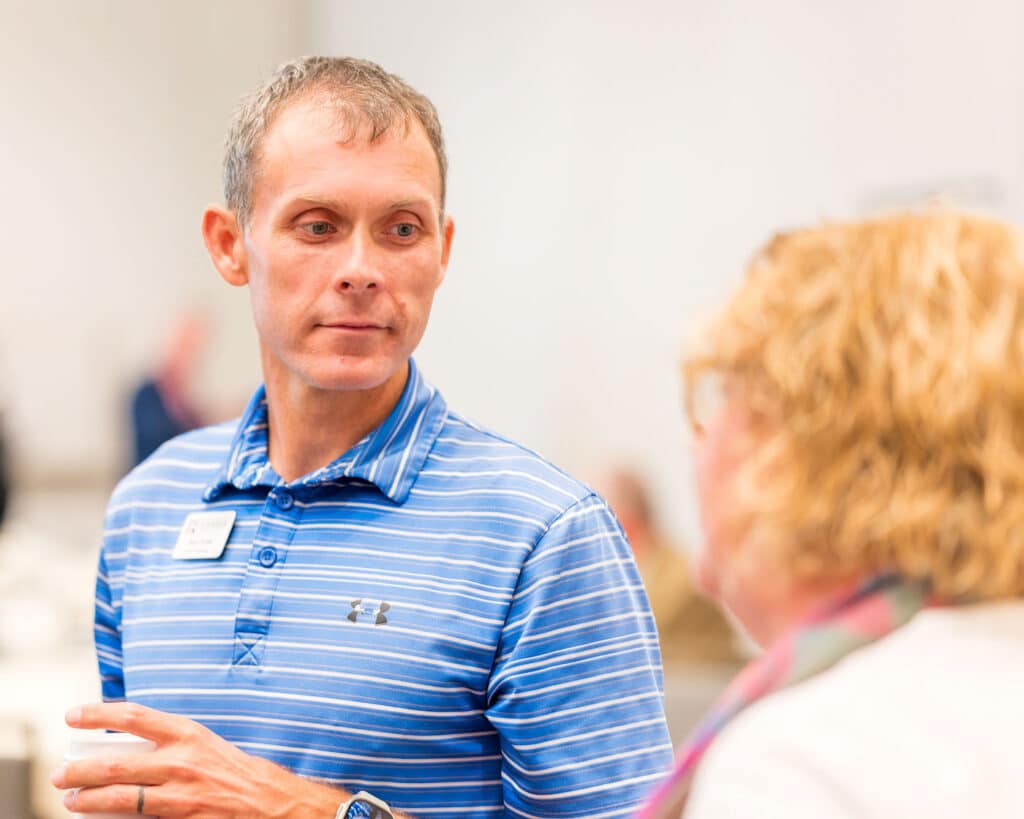
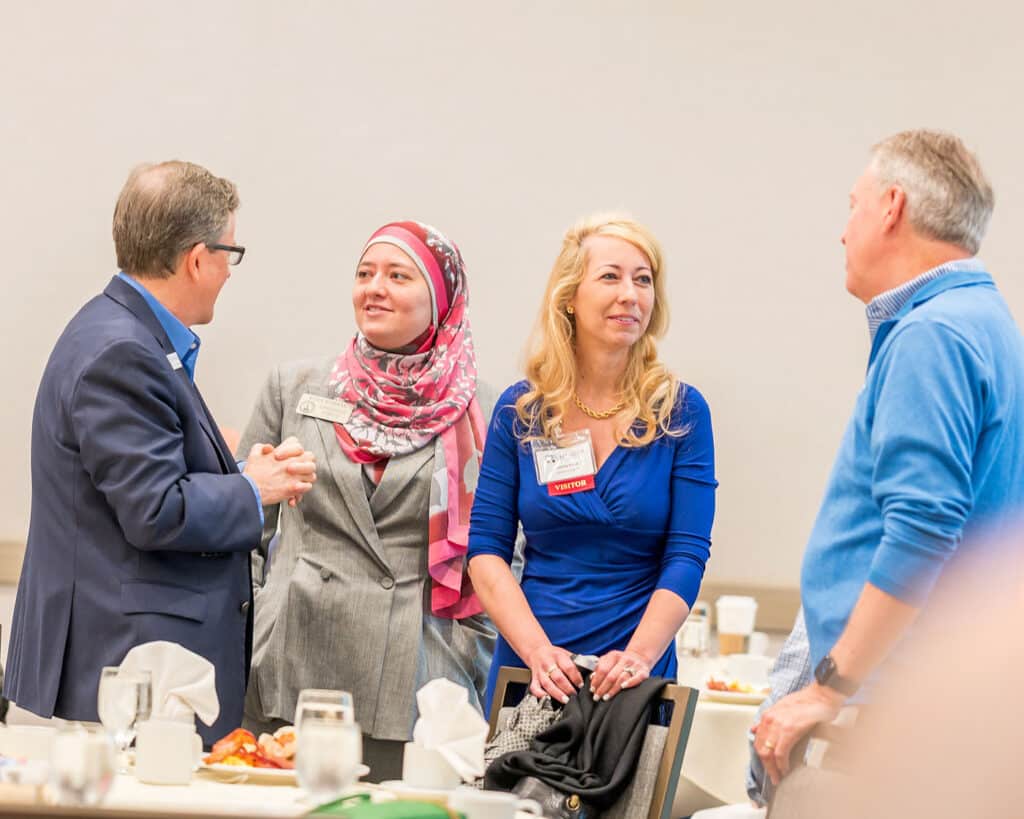
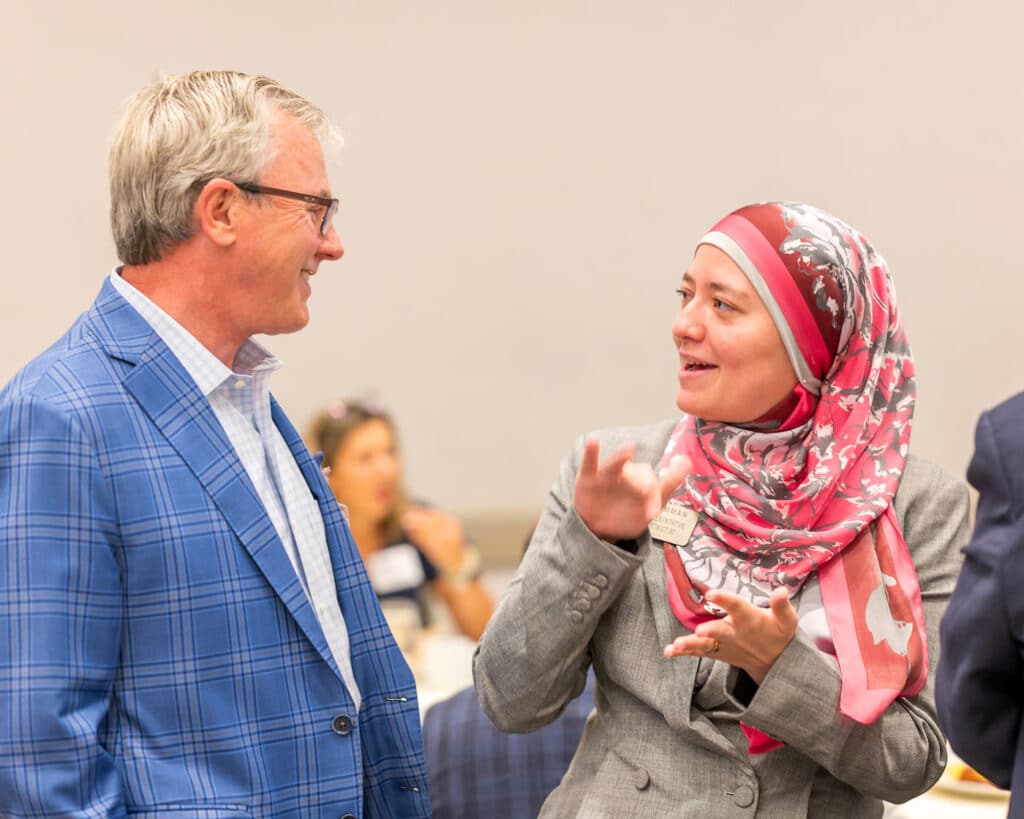
Business-related legislation
When the smoke cleared, both Hilton and Romman joked that they had different opinions about many issues but agreed that’s a healthy part of how the government works.
“The fact that we do disagree and the fact that you, the community, have varying choices and options out there. I think it’s a healthy part of the process,” said Hilton. “And we do have fun. I was telling somebody we play kickball about halfway through the session, and we do get along.”
The discussion moved on to topics such as the FTC ruling on non-compete clauses and tort reform, which just about everyone in the room agreed upon. Although employees could see the beauty of disallowing non-compete clauses, as business owners, they’d hate to see trade secrets put in jeopardy or valuable time and money put into training to benefit another company.
And everyone wanted to see caps on personal injury claims for things like slip-and-falls and fleet vehicle accidents.
“One of the few regrets I have coming out of session is that we didn’t do more on tort reform,” said Hilton. “Right now, Georgia is the number one judicial hellhole in the nation, meaning that we have more lawsuits on businesses and payouts than anywhere else in the country.”
This was one area where both representatives had similar views.
“I don’t think this is a left or right issue,” said Romman. “I want to make sure that whatever tort reform we pursue does not let, for example, a bad-acting company off the hook. But on the flip side, if somebody is just going around and suing everybody all the time to try and make some money off of it, how do you protect corporations and businesses from those kinds of bad incidents litigation?”
“What I will continue to look for when it comes to tort reform is, how are we going about balancing that?” she added.
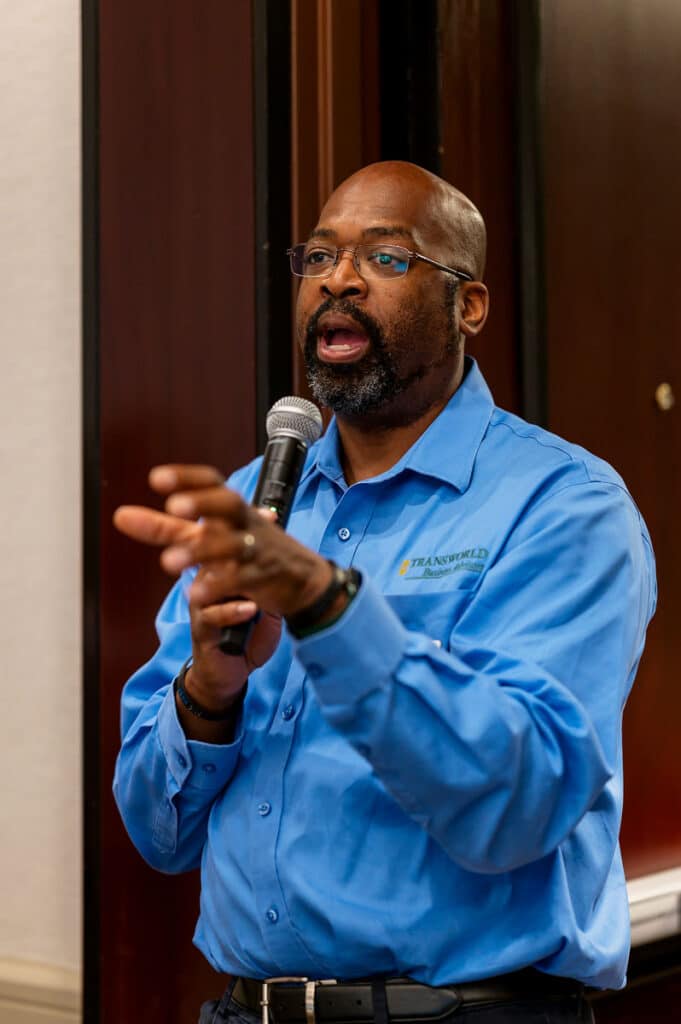
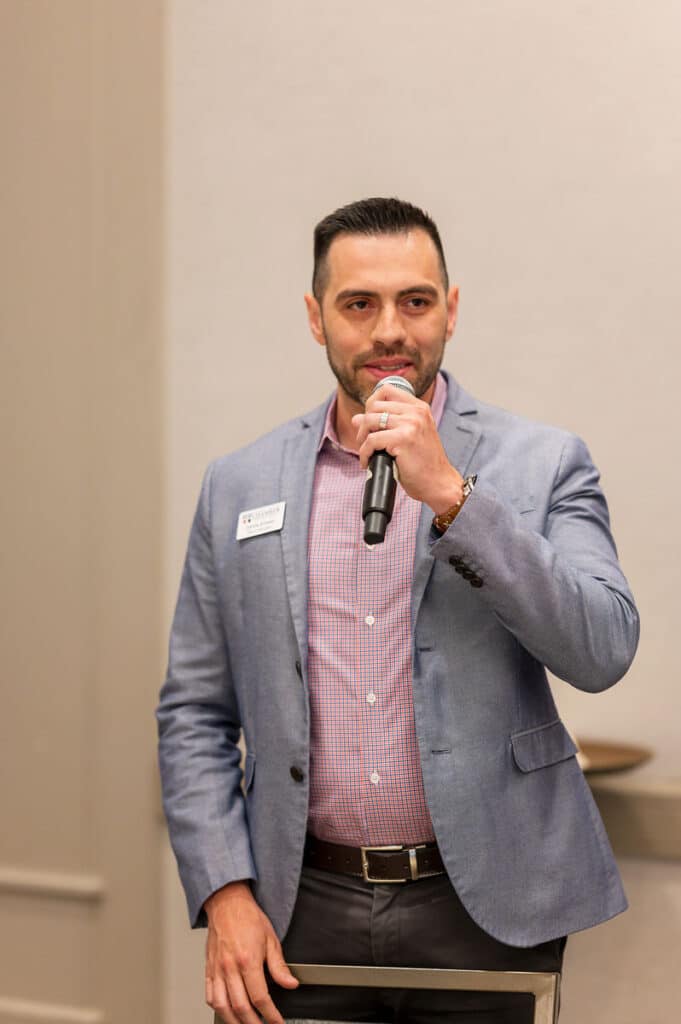
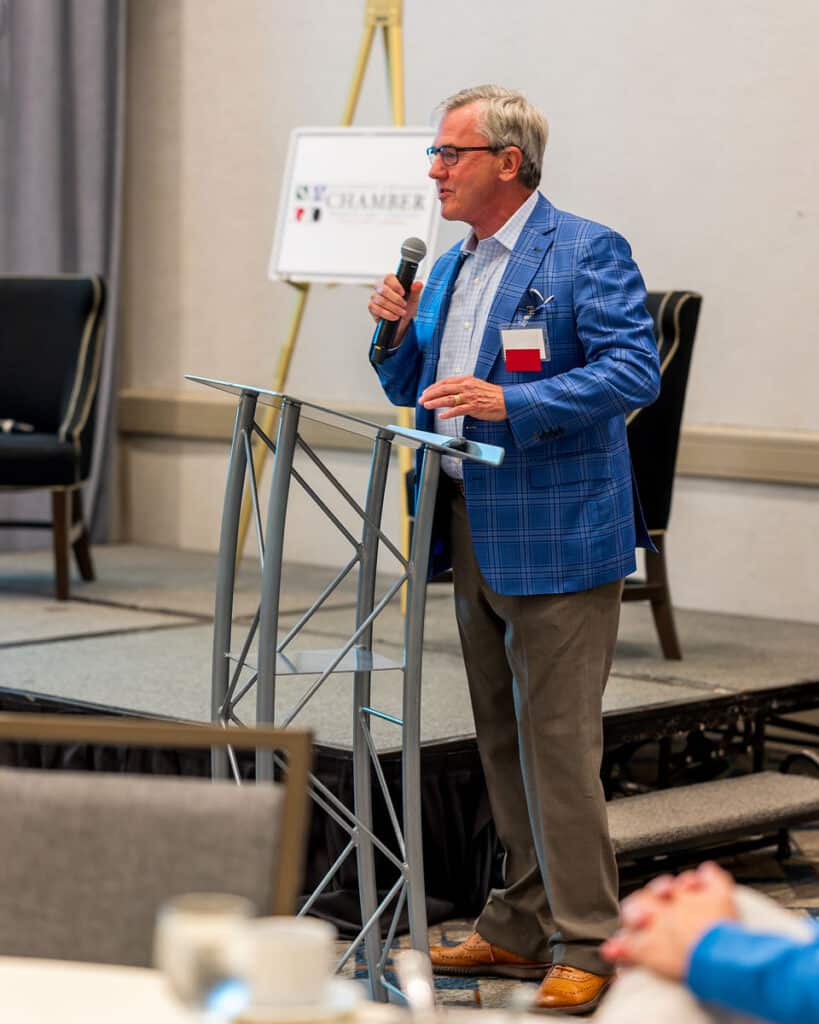
Looking ahead
As the session wrapped, Romman and Hilton pointed out legislation they’d like to see move forward next year.
“House Bill 971 creates a $300 tax credit for taxpayers who sign up for firearm safety training or purchase a safe storage device. It’s a bipartisan measure, viewed by some as a small but perhaps significant move for gun safety advocates, which was tabled in the Senate room,” said Romman.
She said the bill wouldn’t even require someone to disclose that they owned a firearm, but it was meant to incentivize people to store their firearms properly.
“There wasn’t a lot of appetite if somebody didn’t properly store their gun to have consequences for that, so we thought it would just incentivize better behavior,” she said.
Hilton mentioned school safety.
“Over the last three years, every single school in Georgia has gotten a one-time $100,000 grant for School Safety. That’s every school in Georgia; in this most recent budget, we included $45,000 in recurring money for every school in the state to do whatever they want to ensure their campuses are safe,” he said. This includes private schools as well.
At the end of the event, Hilton and Romman reminded the audience that they weren’t running against each other, and even though their views were different, their goals for a better Georgia were equally as passionate.
Related
Read the Digital Edition
Subscribe
Keep Up With Peachtree Corners News
Join our mailing list to receive the latest news and updates from our team.
You have Successfully Subscribed!

What’s going on at Jones Bridge Park and the Challenges of Urban Development

Taste of Peachtree Corners: PCBA Showcases Local Restaurants

The Forum Gives Sneak Peek of New Eateries and Community Spaces

Southwest Gwinnett Mayors Share Visions for the Future

8 Events Happening In and Around Peachtree Corners This August

Peachtree Corners Shines Bright with Light Up the Corners Glow Race this August

Peachtree Corners Shines Bright with Light Up the Corners Glow Race this August

The Forum Gives Sneak Peek of New Eateries and Community Spaces

8 Events Happening In and Around Peachtree Corners This August

Southwest Gwinnett Mayors Share Visions for the Future

Taste of Peachtree Corners: PCBA Showcases Local Restaurants

What’s going on at Jones Bridge Park and the Challenges of Urban Development

Local Resident Opens AtWork Location in Peachtree Corners

CHRIS 180 Expands its Services into Gwinnett County [Podcast]

Light up the Corners [Video]

Capitalist Sage: Business Leadership in Your Community [Podcast]

Cliff Bramble: A Culinary Adventure through Italy

Top 10 Brunch Places in Gwinnett County

A Hunger for Hospitality

THE CORNERS EPISODE 3 – BLAXICAN PART 1

Top 10 Indoor Things To Do This Winter

The ED Hour: What it takes to Remove Barriers from Education
Peachtree Corners Life
Topics and Categories
Trending
-
Business1 week ago
Taste of Peachtree Corners: PCBA Showcases Local Restaurants
-
Business2 days ago
The Forum Gives Sneak Peek of New Eateries and Community Spaces
-
City Government4 days ago
Southwest Gwinnett Mayors Share Visions for the Future
-
Around Atlanta4 days ago
8 Events Happening In and Around Peachtree Corners This August


